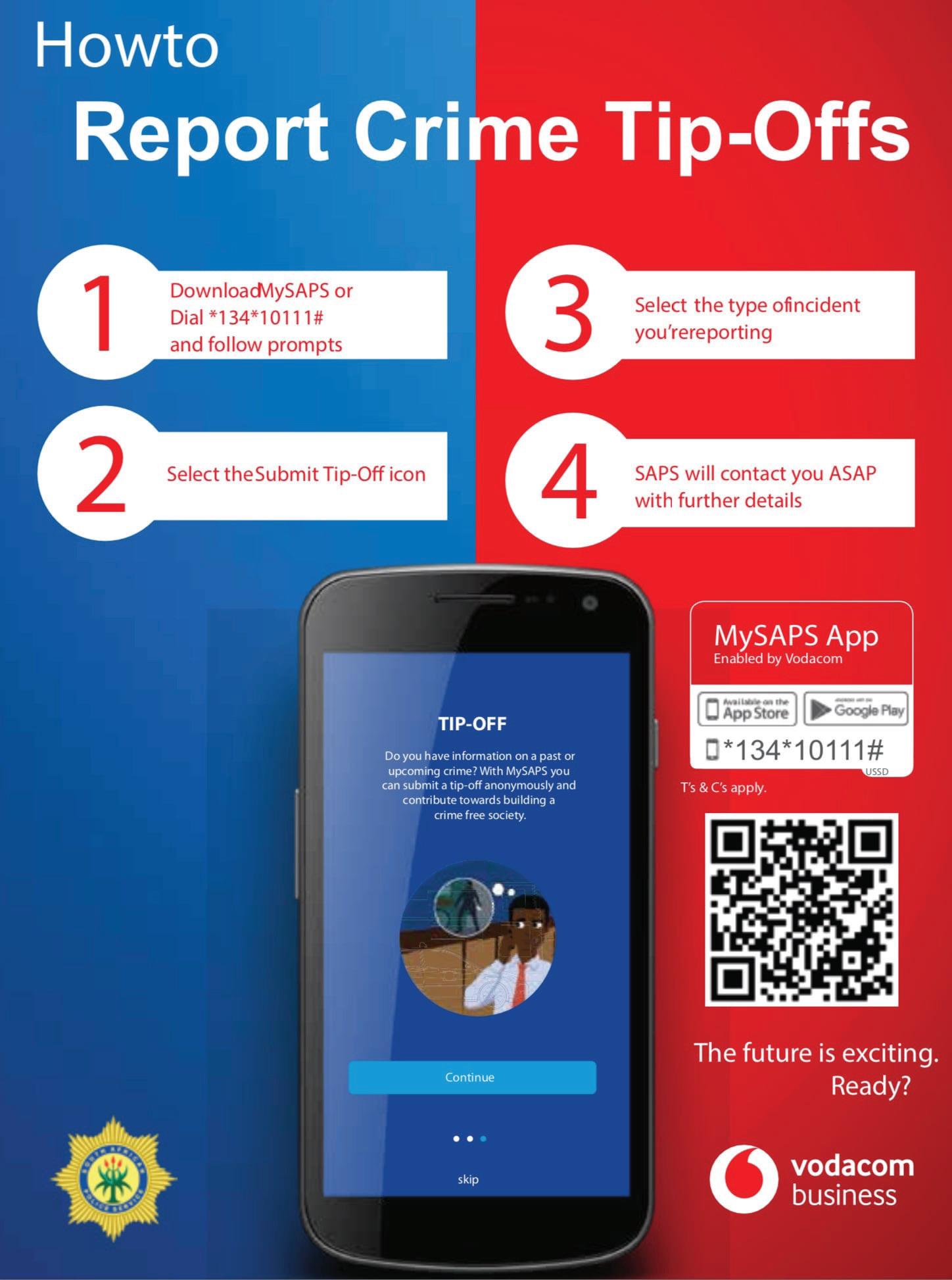
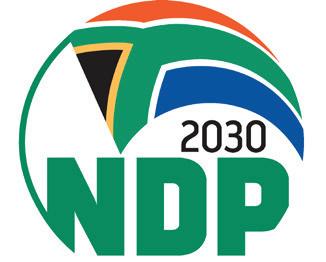







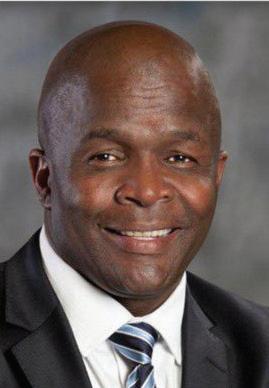
Just a few days before the start of Transport Month, the National Assembly approved two Bills – the Economic Regulation of Transport Bill and the National Road Traffic Amendment Bill.
The first Bill aims to better regulate and consolidate the transport industry so that it is positioned to contribute to South Africa’s economic growth, while the latter will strengthen mechanisms to improve road safety.
These could not have come at a better time. The recent horrific accidents involving trucks have emphasised the urgency with which road safety needs to be tackled. We are also expediting government’s plan to shift cargo off our roads and onto our rails, and the need to reduce congestion by mak-
ing public transport a viable alternative to single-occupancy vehicles.
This year’s Transport Month theme is; “Sishov’ingolovane: Together building transport infrastructure that builds and sustains livelihoods”. Transport Month is marked in October to raise awareness of transport as one of the critical elements in economic growth and spatial development.
While Transport Month is often used to reflect on achievements and highlight challenges that need to be addressed, the recent truck accidents prompted hard questions to be asked and saw government announcing several measures to reinforce current road regulations, even before October dawned. The Pongola crash, which killed 21 people, mainly
school children, highlighted the temerity with which too many truckers drive.
Government has committed to clamping down on reckless drivers, lax truck owners and non-compliant public transport operators. In addition, all provinces should implement a 24/7 shift system to ensure traffic police visibility. The National Traffic Police should also be deployed to help under-resourced areas, as needed. The rules relating to the operation of trucks on public roads will also be revisited.
With road, rail, air and sea passenger, and freight transport powering the nation’s economy, the development and maintenance of infrastructure and the efficient management of transport services cannot be underestimated.
In his 2022 State of the Na-
tion Address, President Cyril Ramaphosa emphasised the importance of efficient ports and railways to economic growth and job creation. To this end, several infrastructure projects are underway, such as the R100 billion expansion projects at the Durban and Richards Bay ports, and the upgrading of the Central Rail Line in Cape Town and the Mabopane Line in Tshwane, at a cost of R1.4 billion each. In addition, in March 2022, Cabinet approved the White Paper on National Rail Policy, which aims to promote broader participation and public investment in passenger and freight rail.
Another positive development is the recent opening of the Musina Ring Road in Limpopo, which will facilitate trade and economic activity between South Africa and the


Southern African Development Community countries. The R640-million project created over 275 full-time jobs for locals and provided opportunities for local communities and small, medium and micro enterprises.
However, operational inefficiencies, thuggery, vandalism and theft need to be addressed if progress is to be made in advancing infrastructure development. It is encouraging to note that Transnet has already partnered with the private sector to deploy advanced
technologies and additional security personnel.
Combatting South Africa’s severe transport challenges – and thus creating the foundation for economic prosperity – requires action from all sectors of society. The Public Service has the biggest responsibility, however. It is our business to implement projects smartly and speedily to ensure that talk becomes action.
Let us unite to make future transport months occasions for celebration.
October marks Social Development Month. The good news this year is that the Children’s Amendment Bill, which will reform foster care in South Africa, should be finalised in November. Once enacted, it will significantly improve the lives of vulnerable children and their caregivers.
The Bill pays particular attention to children in care by providing legal solutions to the overburdened foster care system and addressing challenges in the child care and protection system.
According to the South African Human Rights Commission, around one-fifth of our children are orphaned and in need of care. Compare that to the critical shortage of social workers in the country and it is clear that swift change is needed if tomorrow’s leaders are to get the start they need to thrive.
The Bill will help to bring about this much-needed
change. Among others, caregivers who want to have full parental responsibilities and rights to children who need care, such as orphans, in the care of relatives, will now be able to approach the Children's Courts to apply for guardianship.
Social Development Month aims to highlight the commitment of government and civil society to caring for vulnerable people, while Older Persons Week (27 September to 3 October) pays tribute to our veteran citizens and highlights the challenges they face.
Focus areas this year include making social services more accessible to all people through a coordinated portfolio approach that integrates the services of both the South African Social Security Agency and the National Development Agency.
Government has put in place various programmes to support the vulnerable. These include the Child Support Grant TopUp, which was introduced in
June 2022. It pays an additional R240 – over and above the standard Child Support Grant of R480 – to lessen the burden placed on relatives who care for an orphaned child.
Around 13 million children benefit from the Child Support Grant.
On the eve of Social Development Month, Social Development Minister Lindiwe Zulu explained that a recent review undertaken by the department showed that as a result of the Child Support Grant being expanded to reach more children between 2003 and 2013, child food poverty decreased from 53% to 33% in that period.
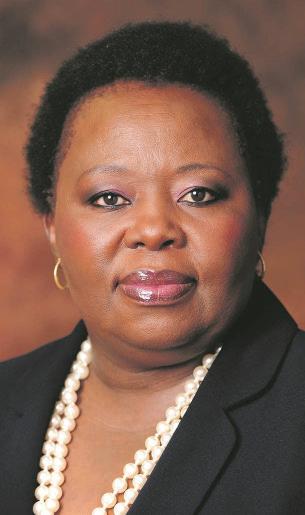
Also worth a mention is the Know Your Status campaign that aims to ensure that nonprofit organisations (NPO) are compliant with the NPO Act, 1997 (Act 71 of 1997). This will ensure they are eligible for government support.
In August 2022, government and the National Economic
Development and Labour Council Community Constituency signed the Social Sector Framework Agreement. The agreement lays the foundation for a state-civil society collaboration that will work to improve the lives of the vulnerable.
The recently published NPO Amendment Bill is also applaudable. It creates a more enabling environment for civil society organisations to conduct their vital social development work.
These are some of the many initiatives undertaken since the advent of democracy to ensure that people with special needs, impoverished people and other vulnerable groups receive the support they deserve.








It has come to the attention of the GCIS that unknown people are approaching suppliers of the GCIS soliciting bribes in exchange to be awarded tenders advertised by the GCIS. The GCIS conducts its procurement processes in a fair and lawful manner and has a policy of zero tolerance regarding corrupt practices by any person including its employees and suppliers.
The GCIS encourages and urges all members of the public who are approached by these unscrupulous individuals to immediately report such conduct to law enforcement agencies.

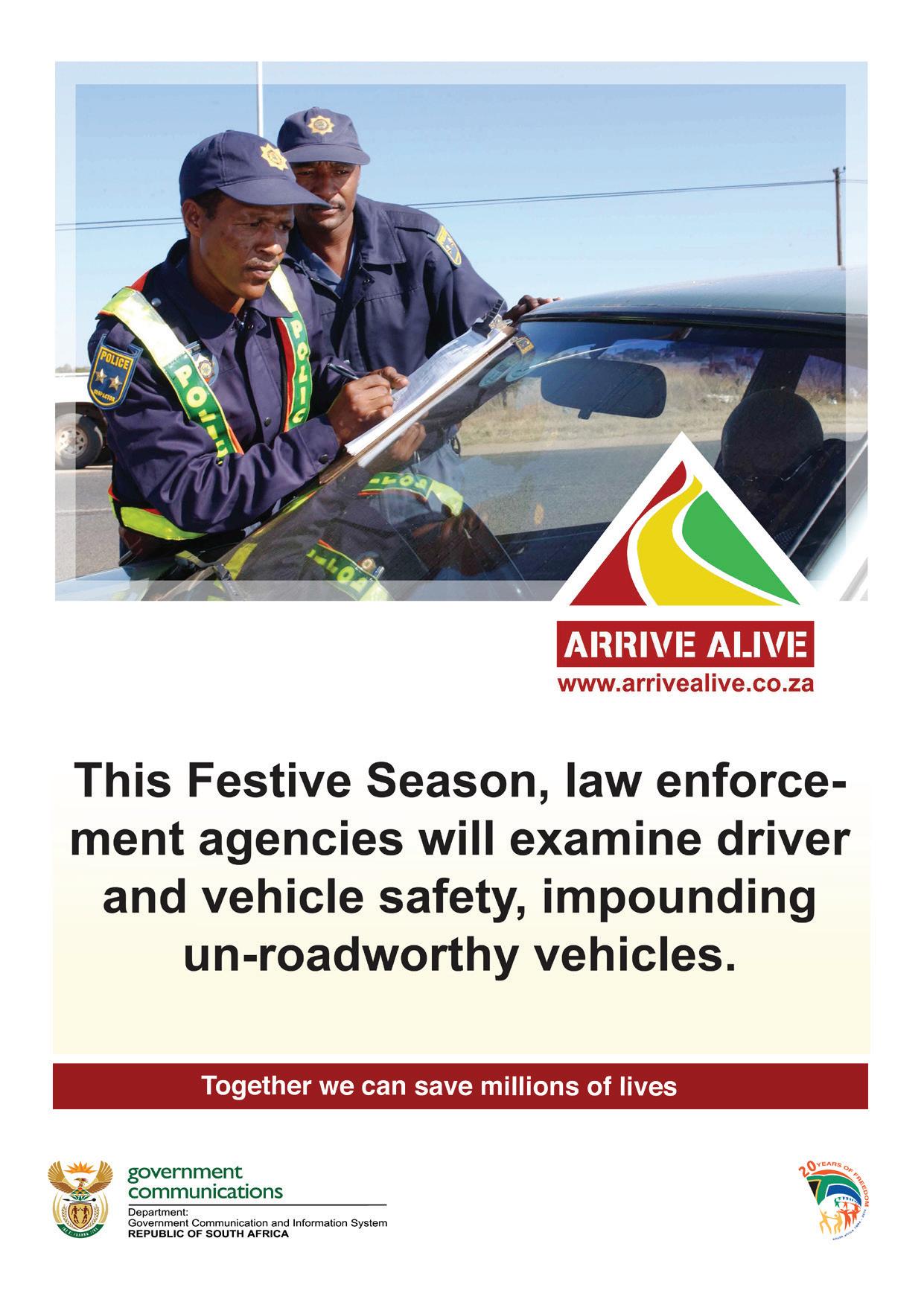
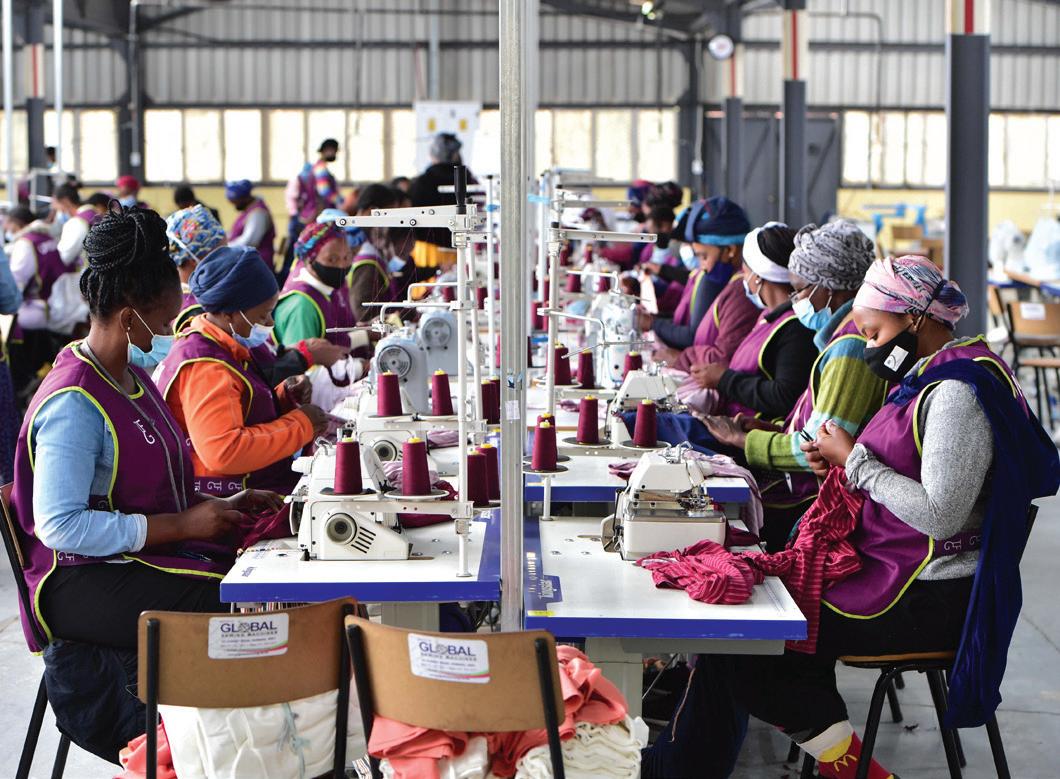
Less than two years ago, we launched the Presidential Employment Stimulus to create jobs and support livelihoods as part of supporting the economic recovery from the COVID-19 pandemic.
The Presidential Employment Stimulus has just reached the milestone of one million participants since its inception.
This achievement is the result of a collaborative effort across government and the wider society, including the private sector, communitybased organisations and many others.
The programme is contributing to employment creation while the economy takes time to recover and create jobs at the scale we need.
As we pursue economic growth to deliver decent and
sustainable employment at a much larger scale, we will continue to build on the success of the Presidential Employment Stimulus and expand its reach. It is still very much needed to complement recovery of the job market. It also supports economic recovery in important ways.
In a context where a lack of work experience is a major
barrier to finding work, these programmes are providing high-quality work experiences.
In the largest programme supported by the stimulus, for example, nearly 600 000 young people have been placed as school assistants in over 22 000 schools in every corner of the country. School management, teachers and other stakeholders all agree
that the contribution of the school assistants has improved the learning environment in schools.
Many self-employed people found their livelihoods disrupted by the pandemic. The creative sector was particularly badly affected. In this sector, support was provided to people to create jobs for themselves and others. The movies, music and plays produced are now able to generate further income from the sale of rights, tickets and royalties. All of this has been contributing to the growth of the sector.
The Presidential Employment Stimulus has also supported sustainable livelihoods. Over 140 000 subsistence farmers have received production input vouchers to assist them to resume and expand production after the
disruptions of COVID-19.
One such beneficiary is 36-year-old Phindile Ngcoya from Richmond in KwaZuluNatal. She is one of ten members of a family farming cooperative and says the voucher she received helped the new cooperative survive and become profitable.
The Presidential Employment Stimulus is also supporting graduates, with opportunities provided to nurses, science graduates, artisans and others. Twenty six universities are helping to place unemployed graduates in work relevant to their qualifications.
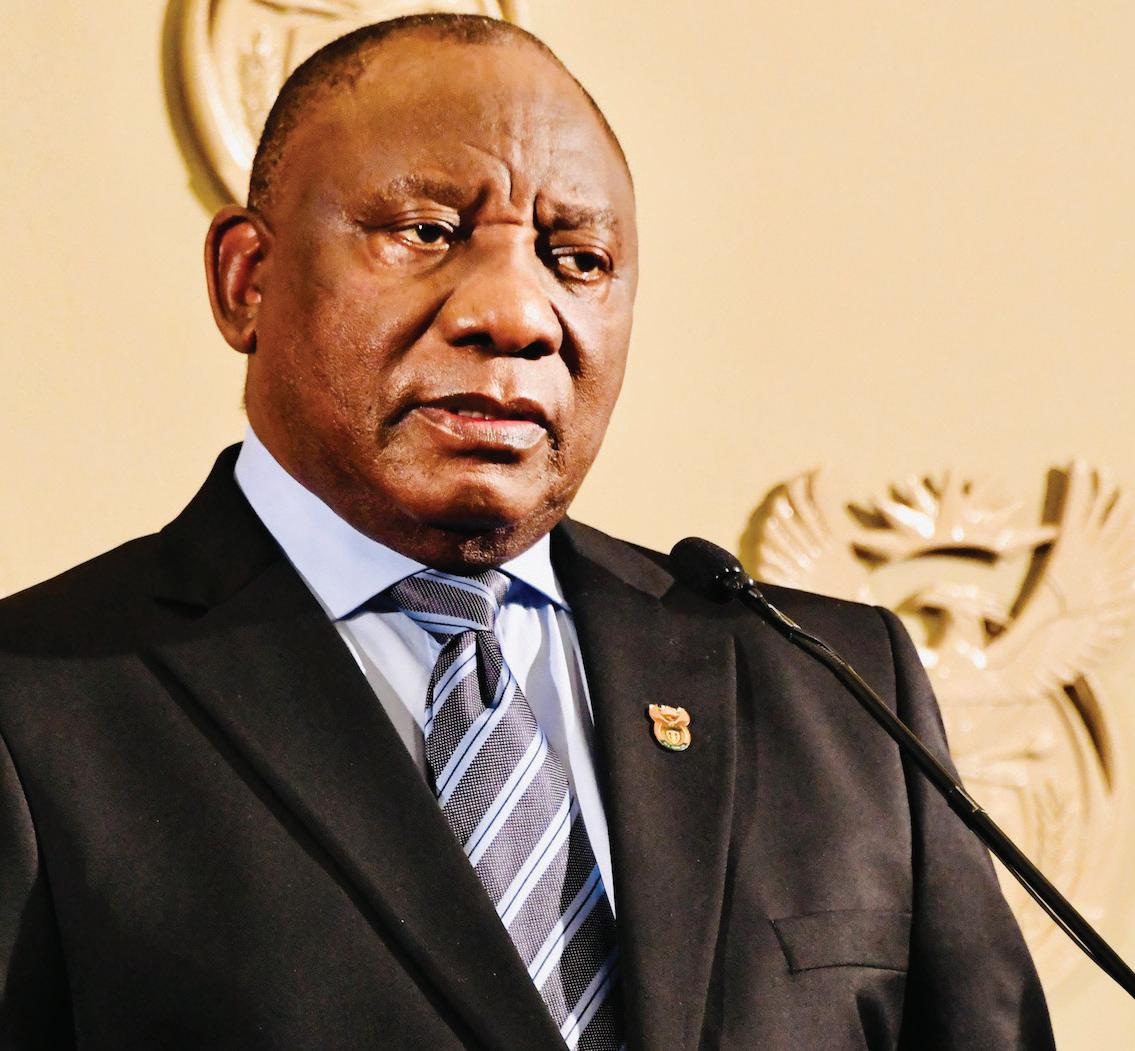
The Department of Science and Innovation has introduced a range of innovative citizen science programmes, such as the Duzi uMngeni Conserva-
tion Trust, which employs local youth as Enviro-Champs to empower communities to rehabilitate local water sources. Another programme by the department helps entrepreneurs to develop business proposals in the green economy.
Public employment programmes also have a direct positive impact on communities because they create work for the common good. In the case of the Presidential Employment Stimulus, this includes improving learning in schools, upgrading informal settlements, supporting survivors of gender-based violence, environmental conservation and innovating in wasterecycling.
The Presidential Employment Stimulus was launched
in response to the unemployment crisis that was deepened by the COVID-19 pandemic. Although the pandemic may have abated, unemployment has not.
The incomes earned in Presidential Employment Stimulus programmes have been an economic boost to small enterprises and informal businesses in local economies across the country. School assistants employed in Umgungundlovu are spending their wages in Umgungundlovu. The same in Putsonderwater.
Instead of the ‘trickle down’ effect, money is being put directly into the hands of communities that need it most. That money then circulates locally and ‘trickles up’ into the wider economy.
That is why we call it a stimulus, because the entire economy benefits along with society.
Through the Presidential Employment Stimulus, we have unlocked energy, commitment, creativity, innovation and opportunities. In the process, we are building a society that works.
Over one million people have benefited directly. Many more people, in the families and communities of participants, have felt the impact of the Stimulus.
Our task now is to expand and deepen the impact of this work.
As a result of the Presidential Employment Stimulus, we now have hundreds of thousands of people with valuable work experience. Most of these people are easy to find through the SAYouth.mobi platform.
We call on business to hire these young people with newly-acquired work experience as they leave these programmes.
Once employers see the Presidential Youth Stimulus as a place to find young talent, then we will be able to realise the full potential of this innovative and hugely successful initiative.
Hawks National Head Lieutenant-General Godfrey Lebeya is a man of immense attention to detail.
Attention to detail is needed if one is to nab those involved in crime.
His deep disdain for corruption is evident in the Hawks’ 94% conviction rate of prosecuted cases.
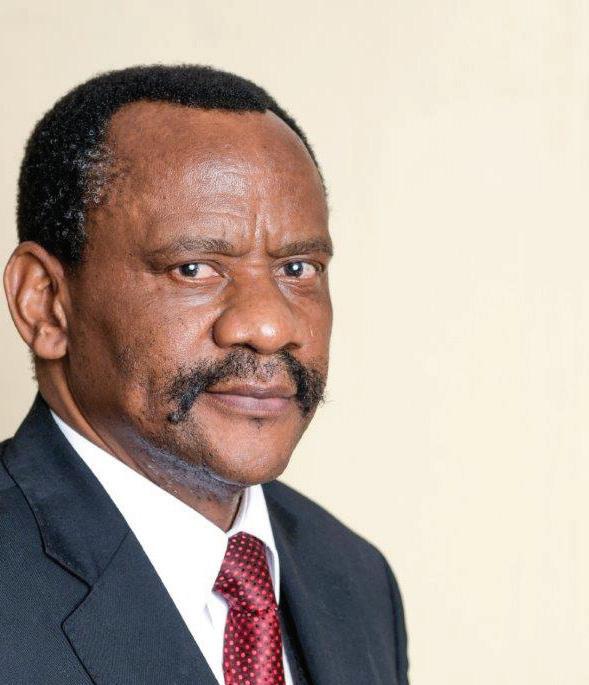
Known formally as the Directorate for Priority Crime Investigation (DPCI), the Hawks have, since foundation in 2009, been responsible for combating, investigating and preventing national priority crimes.
These are in the areas of serious organised crime, serious commercial crime and serious corruption.
Lebeya is most passionate about conquering the latter, as he believes it eliminates any chance of the former two occurring.
Sitting at the edge of his four-chair oval ochre board
table at his modest office in Silverton, Pretoria, Lebeya reflects on his tenure and the journey that still lies ahead.
The scale of the office’s work is the polar opposite of the calm demeanour of the man who was appointed to the top post in May 2018.
He recalls how he assessed the workings of the directorate and implemented the necessary changes.
“You first have to do the assessment. Then you do the implementation after the assessment. You then do the monitoring I designed and called AIM. [In that way], you don't find that you move into a new environment and start making changes as if you know what the weaknesses and strengths are.”
Lebeya has come a long way since the day he took his oath of office as a police officer in Polokwane (then Pietersburg) in the former Northern Transvaal (now
Limpopo province).
Having joined the police service with only a matric certificate in 1984, Lebeya now holds a Doctorate in Criminal Law, with a specialisation in organised crime.
Asked why he pursued academics when he entered the service, he says that when off duty, officers are tempted to indulge in unsavoury activities.
“Our members are getting attacked at taverns and the like when they are not sober. I decided to choose something else. I love reading and this is what I enjoy. I decided that let me improve my qualifications so that when I enforce law, the people I interact with must not undermine me.
“That is why I decided to [do the] police diploma.”
This is something that he advocates for in the DPCI.
When he first set foot in his office in June 2018, the softspoken general, who became an attorney in 2015, recollects discovering a raft of irregularities that needed rectification without delay.
“There were officials that were appointed not in line with the law. First, all the provincial heads (and deputy national head) were sort of given a permanent appointment, to
retire when they reached 60. That is not in line with the Act,” he says.
According to the Hawks boss, the Police Act, 1995 (Act 68 of 1995) requires that such appointments be on nonrenewable contracts of seven to 10 years.
To remedy the anomaly, the matter was discussed with the affected staff and an agreement reached with the majority of those who were appointed, having since left office.
“There are new appointments that have been done. Six provincial heads are new, [it is] only three that I found in the office,” he said.
With the latter, he says, contracts will expire on 31 December 2022, and processes to appoint successors are already afoot. This was done to avoid posts remaining vacant for lengthy durations and to allow for “smooth transitions”.
“To fill the posts takes time because they have to be advertised and selections need to be made. After that, there is vetting because senior man-
agement service appointments can’t be made without topsecret security clearance.
“We have advertised the posts and [have] already done the selection. What is left is the vetting process, as well as the Cabinet process.”
Turning his attention to the directorate’s caseload, Lebeya lays bare the intricate work investigators are tasked with. “The total value of our cases is R1 574 874 806 355.57 (R1.5 trillion)”. With a staff complement of 2 672, the DPCI has the unenviable task of investigating the over 22 477 cases clogging its system. Since 2018, the DPCI has arrested 12 000 suspects identified in cases currently before the courts.
The cases involve 23 519 suspects. While 11 159 suspects were yet to be arrested, 12 360 had already been apprehended.
Of the cases under investigation, 1 998 have reached decision stage, where the
National Prosecuting Authority is applying its mind.
Over this period, the Hawks have secured 4 447 convictions across the country.

Taken aback by the rate of corruption in local government, the Lieutenant-General set up the National Clean Audit Task Team (NCATT) shortly after commencing his duties.
The NCATT has a few highprofile cases pending before courts across the country.
The directorate has several dedicated task teams investigating various matters, including infrastructure damage, cash-in-transits and narcotics.
Lieutenant-General Lebeya’s zero-tolerance stance against corruption is a principle he strives to instil in staff on a daily basis. He also insists that probes be conducted without fear, favour or prejudice, and that they be “fair and honest”.
“People must have that confidence [to say] I know that when a matter is with the Hawks, we know they will do the right work.
“To be able to achieve that, we obviously have to build it. I don't want to leave this organisation as an empty shell, which is why I need to capacitate it.
When I leave, my successor will find it better than how I found it.”
Early morning and late nights are the order of the day for the career police manager.
“For more than 38 years, one has just been thinking policing,” says the man whose day begins at 04:00.
“There is actually no day where there is no success and you have to be kept informed. You can't wait to
hear from the media, so a day is always busy. There is no rest – Sunday to Monday,” he says of his 18-hour days.
To stay abreast of operational matters and to ensure that sullied narratives do not sway investigations, Lebeya randomly requests to be briefed by his respective commanders on certain cases.
From his office, the attorney keeps an eagle eye on the priority cases that he
categorises from the top 100, 30 and 10, saying due to the seriousness of the matters, “they cannot be treated like ordinary cases”.
He bemoans the soaring rates of corruption at local government level.
“That is where service delivery must be happening. I'm not sure if it is the incompetence of those that are given the responsibility of managing these municipalities [or not]. Officials are involved in criminality.
“The municipal managers, the chief financial officers, it appears that they know that [their] time in office is limited and by the time it comes [to an end], they must have gotten something. [At times] I doubt the commitment to service delivery,” he explains.
On the period it takes to finalise matters, Lebeya says the directorate works to complete its investigations timeously but due to prosecutorial and court challenges, these take long to bring to a close and secure convictions.
“When the population
grows, every other thing needs to grow in line with it,” he says, referring to court, prosecutorial and policing capabilities to deal with societal demands.
He says that other forms of crime, namely serious organised crime and commercial crime, come as a result of corruption.
“So, corruption is the area that I’m passionate about. All these other [forms of crime] are possible because those who are supposed to do something [about it] are not doing it because they have been corrupted.

“If all of us can do what is expected of us, these other forms of crime will not be easily committed. When you talk of serious organised crime, it is happening because some of us are working with those organised criminal groupings.”
This is the same with government corruption and commercial crimes.
“You can reduce all of this if you deal with those who are corrupt,” he says. -SAnews.gov.za
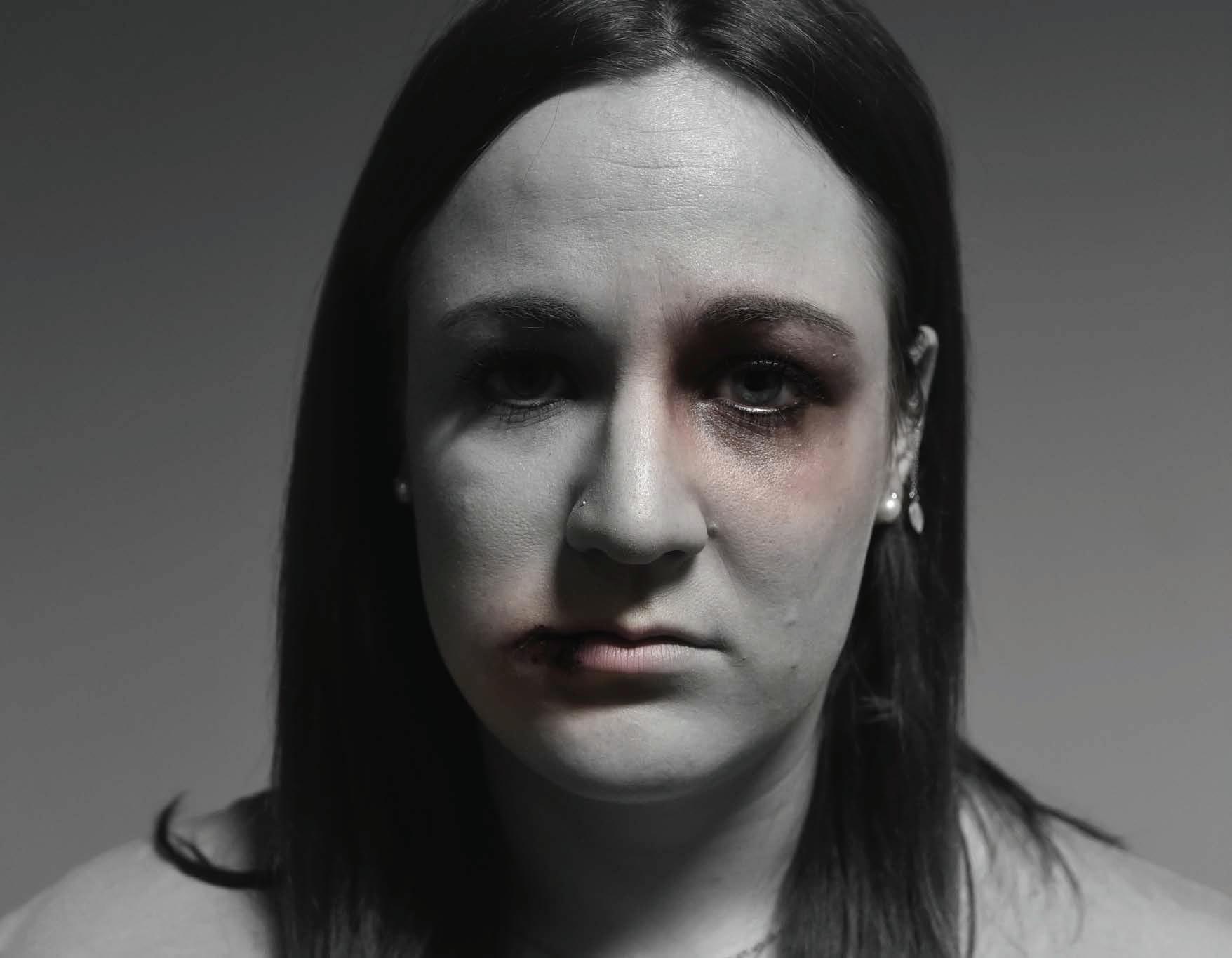
interrupted because one of the arteries carrying oxygen and nutrients to a part of the brain suddenly becomes blocked or bursts.
Rapid treatment increases survival rates and may minimise complications. Kakaza says that, ideally, neurologists must provide treatment for acute stroke within fourand-a-half hours of the onset of the first symptoms. These include weakness, numbness and speech difficulty.
Acute strokes result in neuronal damage and subsequent neurological deficits.
patients were outside the period for acute treatment, so they could not be treated for acute stroke because we were too late for that,” says Kakaza.
The Head of Neurology at the Steve Biko Academic Hospital and University of Pretoria (UP), Prof Mandisa Kakaza (54), believes that managers do not need more staff members to improve outputs – they simply need to revise how they do things.

This has inspired Kakaza and her team to improve the care given to stroke patients and earned the hospital a global award in the process.
According to the Heart and Stroke Association of South Africa, a stroke happens when the blood supply to the brain is
“As soon as the patient arrives, we must diagnose that it is a stroke, we must do a computerised tomography (CT) scan and we must provide treatment. In the past, it would take a minimum of eight hours from the time that the patient arrived at the hospital to get the CT scan,” she says.
“This meant that all our
To address the need for urgent treatment, the neurology unit collaborated with the Angels Initiative, a global partnership that helps hospitals around the world improve their stroke response. The collaboration saw doctors and nurses in the emergency unit of the Steve Biko hospital undergoing three months of training at the beginning of this year to equip them to treat stroke patients as emergency cases.
They also shared their goals with the head of radiology at the hospital so that one of the three CT scans could be prioritised for stroke patients.
“We immediately saw improvement. The officials that
we trained are already medical doctors and health practitioners, so we were just reinforcing what they already learnt in school.”
The result of the intervention is that stroke patients receive care within 15 minutes, and no longer wait up to eight hours, as was the case previously.
This significant improvement earned the hospital a Diamond Status award, in July 2022, from the World Stroke Organisation – a non-profit medical association that raises awareness on the prevention and treatment of stroke.
Kakaza says Steve Biko became the first hospital in South Africa to receive recognition for introducing new techniques and measures to save the lives of patients affected by acute stroke.
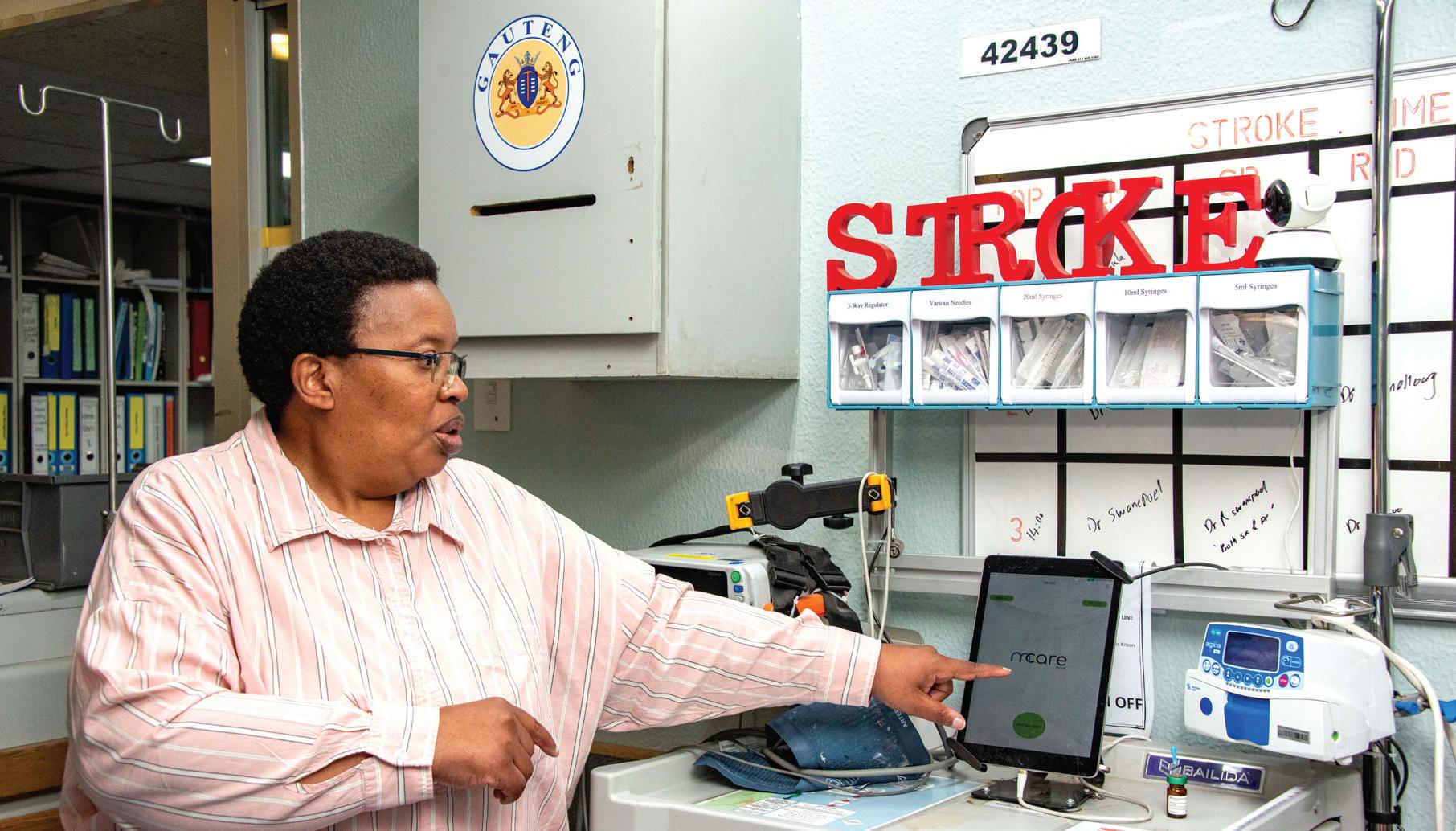
According to the Angels Initiative, every 30 minutes
a stroke patient who could have been saved, dies or is permanently disabled because they were treated in the wrong hospital.
“It is nice to be recognised for the work that you do. We decided as a cluster that we want to improve the care provision for stroke patients within our cluster,” says Kakaza.
The cluster consists of Kalafong Provincial Tertiary, Steve Biko Academic and 1 Military hospitals. There is one consultant neurologist based at Kalafong and two based at 1 Military hospital.
Kakaza says there are insufficient neurologists in South Africa. According to the University of Cape Town, roughly 150 neurologists are equipped and skilled to treat patients in South Africa, but only about 35 work in public hospitals.
Kakaza became the first black
female to obtain a Master of Medicine in Neurology in 2001 from the UP.
She was appointed to her current position in 2021 when her predecessor retired. Before then, she was a consultant neurologist at the hospital for 10 years.
“When you are a consultant, you treat patients and you teach undergraduate and postgraduate students,” she says.
In her current position, she must ensure that students are taught well so that they can pass their modules. She also has to ensure that the university continues to produce research.
“Most importantly, I need to ensure that the department continues to be innovative so that it stays on par with the rest of the world. I am also involved in administration because I have to ensure that the running of the department,
both under Gauteng Health and the university [UP], is smooth,” she says.
Steve Biko is the main teaching hospital of the UP.
Kakaza’s journey in the medical field started in 1985 when she was accepted to study for a Bachelor of Science in Zoology and Biochemistry at Rhodes University.
“We were the first batch of black South African students to be accepted at Rhodes University without permission from the then Minister of Education,” she says.
She furthered her studies at the former University of Transkei, now Walter Sisulu University, and obtained a Bachelor of Medicine, Bachelor of Surgery in 1994.
She was later accepted at the UP to study neurology and obtained her Master of Medicine in Neurology in 2001.
In February 2022, she was appointed Acting Chairperson of UP’s School of Medicine. However, she has made it clear that she is not permanently available for the position because she wants to stay in neurology.
To women leaders, she says the trick is to never give up, even when they get ignored and overlooked.
“When you are finally given a chance, show them what you are capable of,” she says.
Talented software developer intern Nteboheng Molefe has developed first-of-its-kind software for the South African National Space Agency (SANSA).
Molefe’s Mission Assistance Software (MAS) has automated an important process that has long been done manually.
“The MAS captures the time at which a SANSA antenna picks up a signal from a satellite and records the time at
which the signal is lost. It then records the information in a file. It also assists to prepare a specific antenna for the next scheduled satellite pass and enables the streams three minutes before,” says Molefe.
“Before the development of the MAS, SANSA’s Space Operations team had to manually configure the antenna so that it could read the satellite’s signal. Once it had read the signal, staff members had to manually write down
the times when the signal was captured and lost. As the entire process had to be monitored and then manually captured, this resulted in too many errors,” she adds.
Based at SANSA Space Operations in Hartebeesthoek, Gauteng, Molefe came up with the idea of creating the MAS when she became aware of how human error affected the data captured and wanted to simplify the process. “I asked my manager

if I could tackle the problem, under the guidance of our software developer, Jamie Moses,” she says.
The MAS can be used in automatic or manual mode, depending on the user’s choice.
A challenge becomes an opportunity
“One of the challenges faced when creating the MAS was that staff were resistant to using new technology. I started
doing research to determine how best to resolve this challenge,” she says.
Little did she know that by doing this research, she would be selected to present a paper to the global space community at the 17th International Conference on Space Operations, which will be held in Dubai in March 2023.
The conference is hosted by the International Committee on Technical Interchange for Space Mission Operations and Ground Data Systems (SpaceOps), which was formed to create a technical and managerial forum for space agencies, academia and the space industry.
SpaceOps provides industry members with an opportunity to submit papers for consideration to be presented at its biannual conference. And even though Molefe is only an intern, her paper was one of the chosen ones.
“My paper is about human factors and behaviour that can hamper the use of new software applications, just as I experienced when developing the MAS,” says Molefe.
She explains that as a software developer, creating technological solutions that automate or simplify an operation’s processes is crucial.
“But what if your system is
met with resistance? In this case, the software developer would have to consider whether the resistance is because the user doesn’t know how to use the software properly, or if the new system has design flaws.”
A well-designed system such as the MAS must include automation, which reduces human error; and standardised practices, which create familiarity and consistency. “Even though the system may have both of these elements, its business practicality is dependent on the user,” she says.
In addition to developing the MAS, Molefe works on SANSA’s Network Time Protocol (NTP) script software, which compares time.
“Everything at Space Operations deals with time. If our NTP server loses time, even one second, it can cause problems. This is why the NTP script software was created. It compares two NTP server times – a SANSA server and a pool/network server. If the times are out of sync or if the SANSA NTP is down, the software alerts the user. All of these activities are recorded for research purposes,” says Molefe.
Another project she is working on is the F-QR
SCANNER, an android application that will be used by SANSA’s finance department to scan all the assets in the Space Operations building and provide feedback on which are in the database and which are not.
Conceptualised by Moses, the application will automate the manual stock-taking process. “I am responsible for the back-end coding and designing the graphical user interface. My manager, Simon Chaba, and Moses are my mentors and the entire information communication technology team plays a big role in my projects,” she says.
Molefe, who was born in the Free State and grew up in QwaQwa, was selected for the Department of Science and Innovation and Human Sciences Research Council internship in October 2021. She graduated from the University of the Free State
in 2019, with a Bachelor’s degree in Information Technology, majoring in computer science and chemistry.
“After I graduated, I spent two years searching for a job. I was very lucky to be accepted to the programme and placed as a software developer intern at SANSA.”
When she started her job, she thought she would be taught how things are done and would do that for the rest of her internship.
“I came here with C# as my only programming language, but all the systems I have created are in Labview, Python and Java, and I have played around with C++. SANSA has given me an opportunity to show my ability and achieve goals that I thought I wouldn’t get the opportunity to do,” says Molefe, who enjoys spending time with her children and making TikTok videos after a busy day.
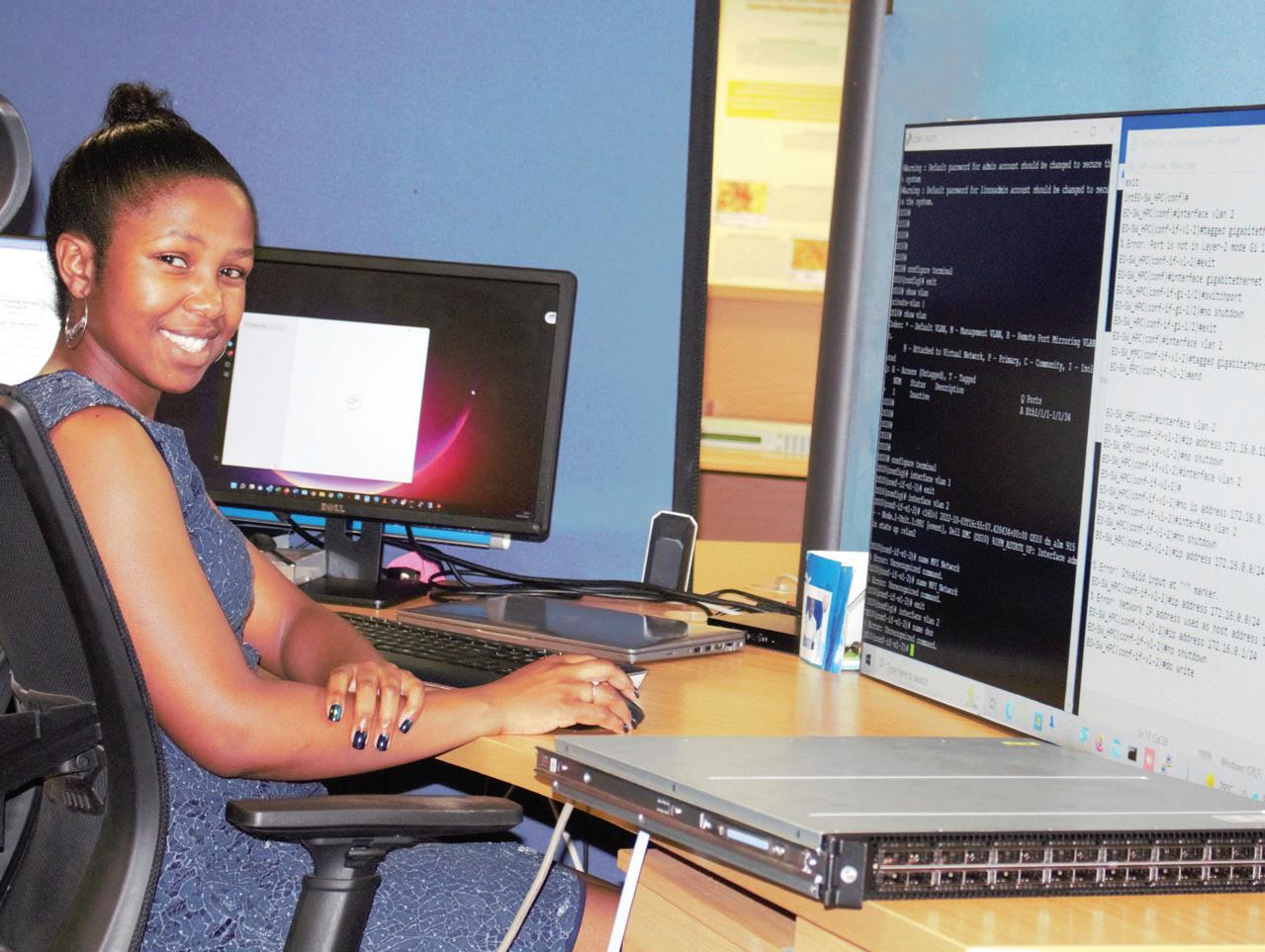
ment. Getting this far has been a dream that I followed and a passion that I nurtured,” he says.
Makaepea obtained a Bachelor of Arts in History from the University of Venda, and an Honours degree in History and Political Science from the University of Pretoria before completing his Master of Management in Public Policy from the University of the Witwatersrand.
He joined the DoT in 2004 as the Assistant Director: Policy Adviser and moved up the ranks to his current position. Along the way, in 2021, he was appointed as the first-ever Deputy Director-General (DDG) responsible for Rail Transport in South Africa – a position he still holds.
and economic regulations.
He also has to facilitate the development of sustainable infrastructure strategies and frameworks for the rail sector; provide oversight and monitoring of the Passenger Rail Agency of South Africa’s (Prasa) capital programme, including the new rolling stock acquisition programme; provide general oversight of rail operations and ensure coordination among stakeholders.
“What is key for the department is to ensure that the sector works very well and that we coordinate the implementation of policies,” he says.
Ngwako Makaepea’s meteoric career has seen him progress from a policy analyst intern at the former Department of Communications in 2000 to the Acting DirectorGeneral (DG) of the Department of Transport (DoT).
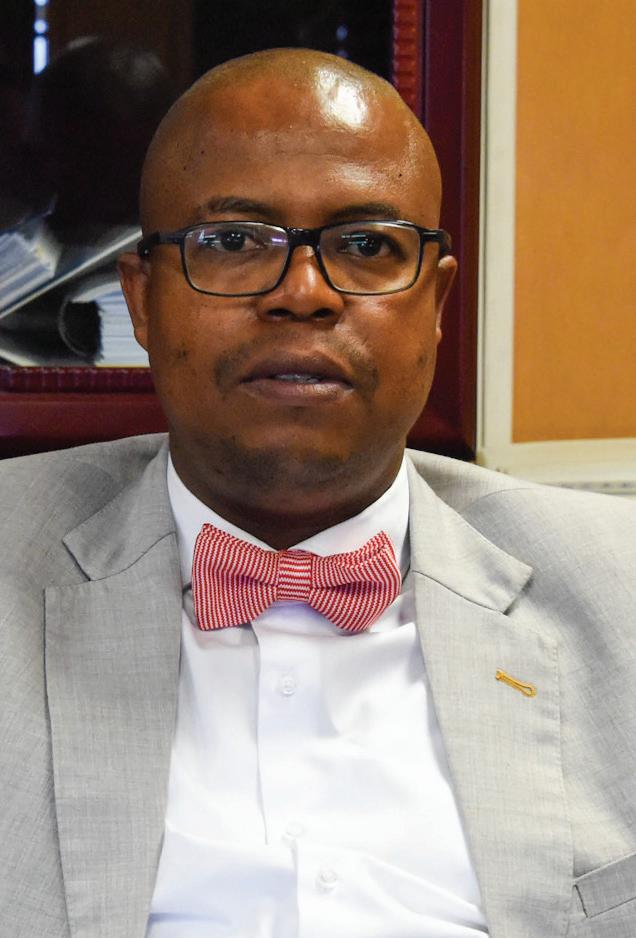
It was not by luck but through hard work and dedication that Makaepea ascended to this senior government position.
He says he saw education as the path to leadership. “It was not by coincidence that I became a leader in govern-
“This is really a milestone for me because I am responsible for charting the way forward in terms of rail transport in the country,” he says.
As the DDG, he is responsible for providing policy and regulatory oversight within the rail sector in the country, and for the development of a rail regulatory framework, inclusive of safety
He previously served as a board member for the Railway Safety Regulator for two years and is currently a shareholder representative on the Prasa Board.
His current appointment was announced by Transport Minister Fikile Mbalula in June 2022.
Because the department is responsible for regulating different
modes of transport, including road, rail, maritime and aviation, he helps oversee the entire transport sector.
“I have to provide and ensure implementation of regulations and policy across all modes of transport, working with the provincial departments of transport and our entities,” he says.
“I always call myself the chief adviser to the Minister because he has the role of leading the transport sector, but it is the department’s officials, under the leadership of the DG, who ensure that citizens benefit from our programmes,” he adds.
From time to time, South Africans mourn the loss of life due to car crashes, and this is among the big challenges that the department grapples with.
The National Road Safety Strategy 2016 – 2030 estimates that the cost of road accidents to the South African economy is approximately R142.9 billion per annum, equating to 3.4% of the Gross Domestic Product (GDP).
“This has a serious impact on the health system, social development and the economic productivity of the country. The transport sector is also mindful of the fact that corrupt activities within road traffic law enforcement contribute to road crashes and fatalities,” he says.
Makaepea says various measures are in place, including, but not limited to, anti-corruption awareness campaigns and investigations in collaboration with other law-enforcement agencies.
According to the 2020 National Household Travel Survey, 13.2% of households reported that their most significant transport-relat-
ed problem is the poor condition of roads.
The study shows that the provinces with the most complaints about the conditions of the roads were the Free State (29.2%), North West (24.5%), the Eastern Cape (21.4%) and Limpopo (19.9%).
To address this, Makaepea says there is a need for targeted investments to preserve mobility and accessibility of the travelling public and freight movements.
“Investment in maintaining, rehabilitating, upgrading and expanding infrastructure has not
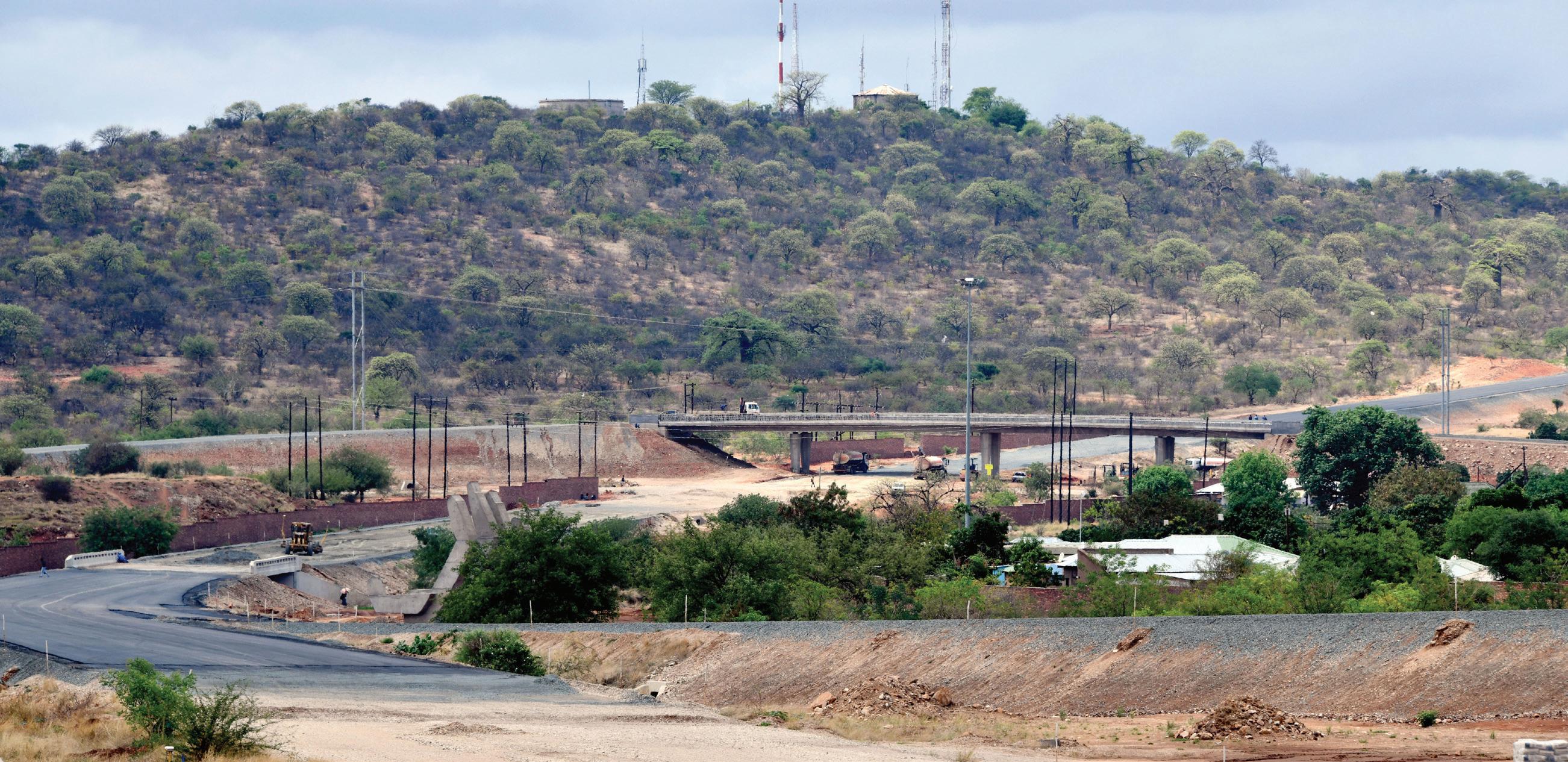
kept pace with growing needs.
As a result, our highways, ports and waterways, airport and air traffic facilities, and passenger rail facilities face growing maintenance and modernisation needs,” he says.
According to Makaepea, transport contributes 6.5% to the country’s GDP.
“In terms of aviation transport, we continue to provide an efficient transport system and infrastructure for both our travelling public and air freight. We have built and revitalised our major strategic airports to cater for the
“The transport sector is also mindful of the fact that corrupt activities within road traffic law enforcement contribute to road crashes and fatalities.”
demand of both passenger and freight movement,” he says.
He says South African airports rate among the best in the world.
When it comes to maritime transport, the department must provide a responsive policy and legislative framework environment through both the National Ports Act, 2005 (Act 12 of 2005), and the Comprehensive Maritime Transport Policy.
“Both the policy and legislation strive to increase efficiencies in terms of our exports to the world market. It is only through exports that we will be able to improve our GDP trajectory,” he says.
For the rail sector, he says
the department and Prasa will intensify the implementation of the Capital Expenditure Programme, with a focus on the Rolling Stock Fleet Renewal, Repair and Modernisation of Stations and the Rail Signalling Improvement programmes.
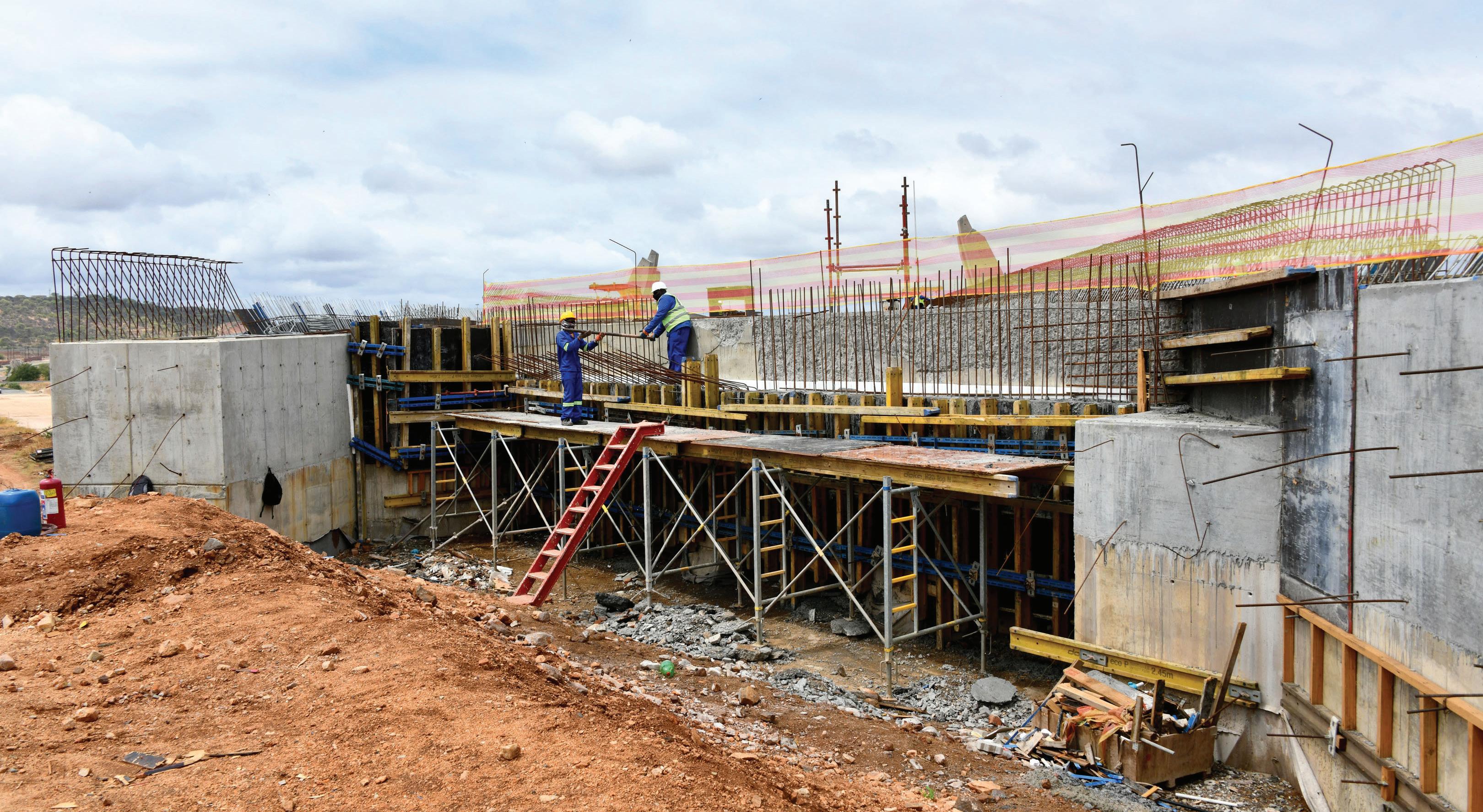
For road infrastructure, Makaepea says South Africa’s road network is approximately 750 000 kilometres (km), of which 618 081 km are proclaimed.
“The responsibility for administration, planning, funding, construction, maintenance and operations of the road network is a concurrent function between national, provincial and municipal road authorities.
The South African National Roads Agency as our entity, is responsible for managing the national road network and, along with the DoT, plays a key role in influencing policy and setting standards,” he says.
Among the initiatives that the department has recently introduced are the Vala Zonke Pothole Repair Programme, which seeks to close potholes on the roads; the rapid response to repairing infrastructure damaged by floods in three provinces (KwaZulu-Natal, the Eastern Cape and North West); the new driving licence card design that complies with
international standards and the recovery of rail priority corridors.
With October being Transport Month, the DoT aims to promote safety across all modes of transport by running awareness campaigns.
Makaepea implores public servants to work together across all spheres of government to improve service delivery and to commit to addressing challenges that face the country.
“We must always remember that we are guided by the Batho Pele principles,” he says.

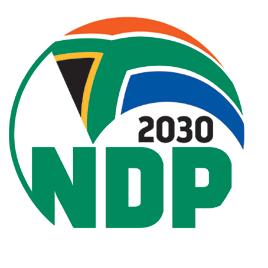
“This was a humbling experience, a stamp of approval that I am one of the leaders to look out for amongst the young women doing research in biotechnology,” she says.
As a rising star in biotechnology, she will put programmes together to develop and train young women in the field. “It’s an exciting venture that’s still in its infancy, but I can’t wait for it to launch and create a generation of young female leaders in biotech innovation,” says Ramalapa, who will partner with entities such as BioAfrica, the Department of Science and Innovation (DSI), Emory University in the United States and Oxford Africa in the United Kingdom (UK).
Ramalapa has also been recognised by Inspiring Fifty, a global initiative that seeks to increase diversity in tech by recognising and amplifying the next generation of female leaders excelling in science, technology, engineering and maths (STEM).
Senior Researcher in Advanced Drug Delivery at the Council for Scientific and Industrial Research (CSIR), Dr Bathabile Ramalapa (37), has shaped her career by demonstrating excellence in everything

she does.
Her work in nanotechnology and nanomedicine, which develops drug delivery formulations that offer more patient-centric drug treatments for breast cancer and diabetes
patients in Africa, saw her recently profiled as one of the first cohorts of rising stars in biotechnology in Africa at the 2022 BioAfrica Convention, which was held in Durban from 29 to 30 August 2022.
While her research at the CSIR initially focused on drug delivery systems for communicable diseases, such as tuberculosis (TB) and malaria, she realised that there was an increase in non-communicable diseases affecting underserved African
communities.
“Available treatment regimens do not necessarily serve our people’s specific needs, due to the challenges of accessibility and affordability,” she explains.
In 2019, Ramalapa started conducting research on developing drug treatments for breast cancer and diabetes for people in Africa.
“Breast cancer and diabetes mortality rates are increasing exponentially each year in Africa. My ultimate dream is the development and manufacturing of drug treatments and tools to manage such diseases locally and affordably,” she says.
With October being Breast Cancer Awareness Month, Ramalapa highlights that the three-year survival rate for breast cancer patients in South Africa is 56%, compared with 90% in high-income countries. “The biggest contributor to this is access to treatment, which is influenced by high costs. Our goal is to develop lower-cost treatments,” she says.
While breast cancer treatment Herceptin has only been around for a decade, insulin has been used to manage diabetes for a century. “There are challenges of access for both treatments due to their cost. The situation in low- to middle-income countries is exacerbated by the logistics
involved in getting treatments to patients, and a lack of education in administering the treatment, specifically for diabetic patients who must self-administer it intravenously,” Ramalapa explains. Her research aims to address this challenge.
“The initial goal is to develop treatments that are more suited to the African climate. Ensuring that biotherapies used in the treatment of insulin and Trastuzumab [Herceptin] are effective at ambient temperature will eliminate the burden of ultracold chain logistics.
This will greatly reduce the cost of getting these treatments to patients.
“The second goal is to develop alternative delivery systems for treatments. For self-administered insulin, intravenous delivery promotes patient noncompliance and some patients do not administer correctly due to a lack of education,” she explains.
Ramalapa always wanted to be a
medical doctor.
“Growing up, I did not know what a scientist was and that someone like me could have the opportunity to become one. My passion for innovation attracted me to a career in STEM. I was inspired by the need to find simple and innovative ways to solve African problems. I did not like the one-size-fitsall approach to solving our problems based on what was working for the rest of the world,” she adds.
Ramalapa joined the CSIR in 2007 as an intern, after completing her undergraduate degree in Chemistry at Tshwane University of Technology (TUT). She then worked as a CSIR researcher, from 2009 to 2013, developing drug delivery systems for TB. From 2011 to 2013, she also conducted research at the CSIR towards her TUT MTech Chemistry degree.
In 2010, she received a Visiting Scholar Travel Grant for the University of Nottingham in the UK, where she attended a six-month course. After being a Norvatis Fellow in Switzerland in 2013, she studied towards a
PhD in Pharmaceutical Sciences at the University of Angers in France (2014 to 2017) while also studying for a PhD in Chemical Sciences at the University of Liege in Belgium (2015 to 2018). A European Union Nanofar Dual PhD Grant made this possible. Following her studies, she rejoined the CSIR as a senior researcher in 2018.
Ramalapa is also involved in programmes with the DSI that foster European Union-South Africa collaborative networks and human capital development in science and technology.
She is also a member of the National Research Foundation Grant Review Committee for Chemistry and Material Sciences (2020 to 2023), and she recently started working with the Science Diplomacy Capital for Africa, for which she will be an ambassador.
She also supervises PhD chemistry students at the University of Johannesburg and is a visiting lecturer in nanomedicine at the North West University.
A mother to two toddlers, Ramalapa spends her downtime regularly visiting play parks. “I love the outdoors and enjoy trail walks on Saturday mornings. I also enjoy champagne picnics, markets with friends and fine dining with my partner,” she says.
“Breast cancer and diabetes mortality rates are increasing exponentially each year in Africa.”
In South Africa, employee absenteeism costs the economy between R12 and R16 billion per year, largely attributed to workplace stress, burnout and ill health.
This is according to Michel’le Donnelly, the Project Leader: Advocacy and Awareness at the South African Federation for Mental Health. “Each year, lost productivity due to anxiety and depression costs the global economy US$1 trillion,” she adds.

Donnelly explains that poor mental health impacts employee performance, staff turnover, absenteeism and accidents, all of which cost money.
In October 2021, at the Department of Health’s World Mental Health Day commemoration webinar, Public Service and Administration Director-
General Yoliswa Makhasi noted that mental health remains a major challenge in society as it is still clouded by stigma and feelings of shame, which stop people from seeking help for emotional distress. This October, Mental Health Awareness Month 2022, gives public and private sector managers the opportunity to gauge how successful they have been in addressing their staff’s wellbeing.
There are several mechanisms in place to help public sector managers maintain healthy workspaces, including government’s employee health and wellness programmes. Public Service Regulations 53 and 54 of 2016 place an obligation on heads of department to establish and maintain a safe and healthy work environment
for employees. In terms of these regulations, each department is expected to have a policy that promotes the health and well-being of employees, said Makhasi.
Mental health in the workplace
Donnelly say s the workplace is a strong contributor to mental well-being.
“It provides employees with a sense of purpose and social contact and contributes to social and personal identity. It also helps to create structure in people’s lives, which many may find beneficial to their mental health.”
Her strategies for dealing with stress include understanding your stress, identifying what you can change and seeking guidance from sup -
portive relationships.
“It’s important to recognise when you start feeling the pressure building. Don’t ignore warning signs. Figure out what’s causing your stress and determine what you need to keep yourself well immediately and in the short- and longterm,” says Donnelly.
Dr Shafeeka Dockrat, a psychologist and Director of Student Development and Support at the Tshwane University of Technology, offers tips on how to destress. These include good time management; determining which stressors you can eliminate from your life with minimal consequences; focusing on the basic aspects of well-being, such as sleeping, eating well and exercising; investing time in daily self-care and relaxation activities, and
strengthening your support systems.
“Time management is a stress management 101 tool. Planning your tasks in a timely manner reduces the pressure associated with trying to complete a task or multiple tasks at the 11th hour,” she says.
While stressors are inevitable, Dockrat says it is better to identify those that can be easily eliminated with minimal significant consequences, and remove them.
Dockrat says some symptoms of burnout overlap with other mental or physical conditions. “If you are feeling exhausted, getting ill more often, are apathetic and detached, and your work performance has declined substantially, you should consult a psychologist.”
She adds that symptoms associated with various mental disorders differ substantially. “If you have no physical health issues and are experiencing severe challenges and difficulties in your ability to go about your day-to-day activities and maintain relationships, it is best to consult a psychologist.”

It is critical for managers
to also talk about burnout, as it is different from stress, explains Donnelly.
“Burnout may be the result of too much stress, but stressed people can still imagine that if they can get everything under control, they’ll feel better. When people are burnt out, they are in a total state of exhaustion. They often have no hope, feel empty and mentally exhausted, have no motivation and are beyond caring,” she says.
Dockrat and Donnelly agree that leaders can look after their teams’ mental health by emphasising mentally healthy workplaces.
This can be done by providing in-depth mental health awareness, educating employees about mental health, creating a more tolerant work environment for employees living with mental illness, encouraging people to seek help when struggling, and involving employees in decision-making and career development opportunities.
“By doing this, you are creating a workplace that acknowledges the importance of good mental well-being and enabling a supportive environment where persons with mental illness are not stigmatised and may feel free
to access the support they require,” says Donnelly.
Dockrat says leaders should attempt to create a workplace culture that prioritises mental wellness by ensuring that they and their team members take their leave, public holidays and lunch breaks. “It is a fine balance between rewarding outstanding performance and promoting a healthy work-life balance.”
If you are feeling overwhelmed daily, you need to focus on self-care, says Donnelly.
“Self-care is about making sure to continue to do things that are good for you, make you feel good and bring meaning and fulfilment to your life. Self-care looks different for everyone. It could be a good night’s sleep, connecting with a colleague or going for a walk. It’s important to find what behaviours make you feel fulfilled and bring you joy, and what things you should do when you are struggling with your mental health,” she says.
Various government departments have policies that support employee health and wellness, including
mental health. These are supported by the Employee Health and Wellness Strategic Framework for the Public Service, which ensures the management of comprehensive health and wellness programmes and services in the Public Service. The policy aims to “build and
maintain a healthy workforce for increased productivity and excellent service delivery for the benefit of employees and their families”.
Government is working hard to resume commuter rail services, which were suspended due to destruction and vandalism at the hands of syndicates and opportunistic criminals during the hard lockdown – implemented to curb the spread of COVID-19.
With the successful resumption of services on the
Pretoria-Pienaarspoort line, Transport Minister Fikile Mbalula has assured the public that work to recover services is ongoing in all the rail corridors in the country.
The resumption of services will ensure that South Africans, who have been severely impacted by the suspension of commuter rail services have
access to a safe and reliable public transport system.
As part of this year’s Transport Month campaign launch, the Minister boarded a new train from Pienaarspoort in Mamelodi to Pretoria A Station.
The Pretoria-Pienaarspoort line alone has undergone major reconstruction, with
the introduction of advanced signalling technology, modernised high-speed circuit breakers, and the use of aluminium wires to counter copper theft.

The service officially resumed with the new trains on 26 September 2022, following approval by the Railway Safety Regulator.
“This is in line with our com-
mitment to return 10 priority corridors to service this year. The Passenger Rail Agency of South Africa (PRASA) is on track to rebuild and recover these commuter rail corridors, three of which are in Gauteng, with an allocated budget of R2.7 billion,” said the Minister.
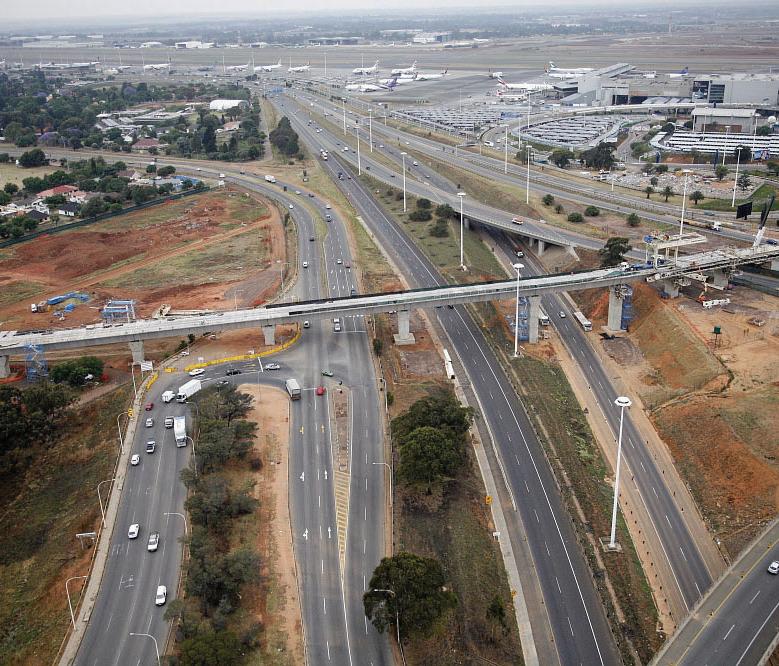
In December 2019, PRASA had to suspend the majority of its electrified train services in the Gauteng North and South regions due to extensive theft and vandalism of the power supply system and other railway infrastructure assets.
This suspension affected in excess of 200 000 commuters that rely on the commuter rail service for their livelihoods.
In April 2021, a programme was designed to recover train services between Pretoria and Pienaarspoort, Pretoria and Kaalfontein, Leralla and Johannesburg, as well as Naledi and Johannesburg.
A diesel service was introduced on the Pretoria to Pienaarspoort corridor before it was closed in May 2022 for major rehabilitation – including refurbishment of substations.
“Our work of recovering rail services is ongoing in all the rail corridors in the country. This includes lines such as the Naledi to Johannesburg. Work
is being accelerated to achieve the limited electrified train service in the area,” said the Minister.
The eight stations, which are being revamped in preparation for service resumption are New Canada, Mlamulankunzi, Orlando, Nancefield, Kliptown, Midway, Lenz and Tshiawelo.
“Work is currently underway to recover rail services on the Cape Town Central Line. This entails the relocation of the illegal settlements that are currently on the rail track and reserve.
“We have recently signed a social compact with all the parties that are involved and affected by the situation on the central line, outlining the roles and responsibilities of each party,” he said.
As part of the Transport Month campaign, government will visit KwaZulu-Natal to assess progress made on the rehabilitation of rail and road infrastructure that was destroyed by floods.
The Minister said the department’s work with provinces and municipalities to improve service at driving licence testing centres is beginning to bear fruit, with motorists
spending less time in queues.
“We have no doubt that services will improve exponentially with the combination of online services, deployment of smart enrolment technology and the new eye test arrangement.
“We are also strengthening measures that will enable us to uproot corruption and impose heavy penalties on those who continue to flout the rules of the road,” the Minister said.
Mbalula emphasised that road safety remains a critical cornerstone in government’s efforts to arrest the carnage on the roads.
“We continue to implement innovative measures that not only ensure that the law bites, but also inculcate responsible behaviour by all road users,” he said.
The National Assembly recently passed the National Road Traffic Amendment Bill, bringing it a step closer to becoming law.
“The strengthening of the regulatory framework, through this amendment Bill, will provide us with more instruments to hold the motorists accountable on the road.
“Our work towards classifying traffic policing as a 24-hour, seven-day job is progressing in earnest, with the majority of provinces having taken the required decision,” the Minister said.
The department continues to roll out the Taxi Relief Fund, which was conceptualised to mitigate the impact of COVID-19 on the taxi industry.
– SAnews.gov.za
The National School of Government Deputy Director-General Lakela Kaunda has scooped an award for the Best Paper in Local Government Administration.
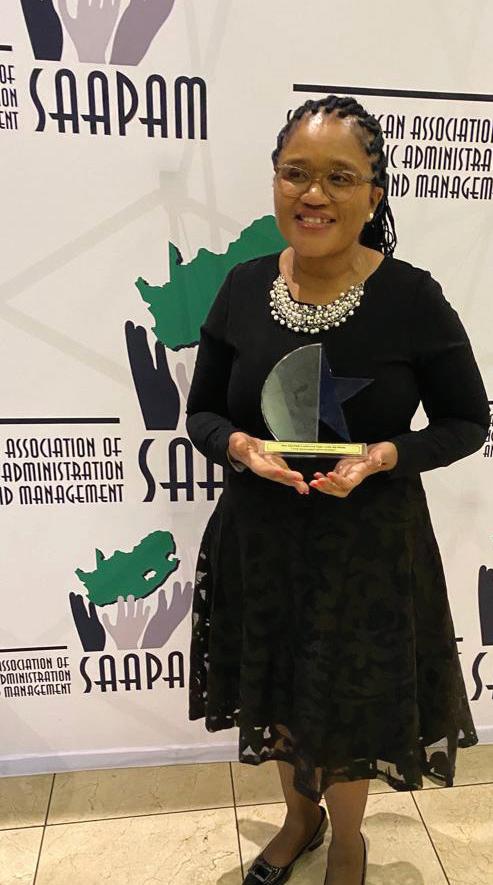
Her paper was chosen among other academic papers delivered at the South African Association of Public Administration and Management (SAAPAM) Conference held in East London from 26 to 30 September 2022.
The paper, A Critical Assessment of the Utilisation of the Facebook Social Media Platform to Communicate with the Public on Governance and Service Delivery Matters by
South Africa’s Eight Metropolitan Municipalities, looks at how municipalities use e-participation mechanisms to effectively communicate with the public.
SAAPAM brings together academics, public service practitioners and public administration students to deliberate and share ideas and solutions on issues affecting public administration.
Over 350 delegates from more than eight countries attended the conference and more than 200 academic papers were presented. A special SAAPAM committee of renowned scholars selected the best papers
among those delivered under the various themes, following a rigorous review exercise.
Nine winning papers were announced at an awards ceremony held at the conclusion of the conference on 30 September.
Kaunda co-authored the paper with Prof Ricky Mukonza of Tshwane University of Technol-
ogy. She says they chose the topic because local government is the sphere that is closest to the people. Municipalities provide basic services that people use daily, such as water, electricity, refuse removal, street lights, cutting grass on the verges of roads and road maintenance, and also promote local
economic development and job creation.
The paper explores the use of social media, in particular Facebook, by metropolitan municipalities to engage in two-way communication with the public. The country’s eight metros are Buffalo City Metropolitan Municipality, Nelson Mandela Bay Metropolitan Municipality, City of Cape Town, Ekurhuleni Metropolitan Municipality, City of Johannesburg, City of Tshwane, eThekwini Metropolitan Municipality and Mangaung Metropolitan Municipality.
Municipalities are obliged by law to undertake their responsibilities in consultation with their residents, which means that public participation is the cornerstone of the country’s local government system. Members of the public can participate through formal structures, such as ward committee meetings and public meetings. Given the advent of the Fourth Industrial Revolution and the adoption of e-government, the public is able to access services digitally and to communicate with stakeholders through online and social media platforms.
“Social media has brought along a powerful capability of being an interactive social engagement tool. Government can thus engage in two-way com-
munication with citizens in real time. Social media can thus enhance e-participation and make engagement between government and the people possible.
I was, therefore, curious to see how municipalities used Facebook to communicate with the public, especially during the lockdown period when physical contact was impossible.
I was encouraged by the fact that the public continued to reach out to government via social media, which provided an opportunity for continuous engagement,” says Kaunda.
The researchers scrutinised content posted on the municipalities’ Facebook pages in November 2021.
This was a significant month because the country was still under lockdown and the local government elections were held on 1 November. Information sought included whether the municipalities had a Facebook page, the number of followers, the type of information posted by the municipality, the responses and comments of the followers, the nature of engagement on the page and whether the information flow was multidirectional or one way.
The study found that the municipalities had an official presence on Facebook and used their pages to post information. However, they did not engage the public on an ongoing basis.
“Despite the interactive capability of Facebook, communication with the public is primarily unidirectional. The municipalities post information on the page, but do not interact with and engage followers on an ongoing basis.
“Questions, complaints and comments from users largely go unanswered, which defeats the purpose of e-participation.
The users interact amongst themselves on some occasions and assist one another with responses, for example on service delivery inquiries,” adds Kaunda.
The study noted that three municipalities responded occasionally to inquiries, but not as frequently as the user responses demanded. Some of the municipal responses tended to be automated notices informing users to contact certain toll-free numbers.
The study concluded that giv-
en the number of people who use Facebook in South Africa, the platform is an important tool that should be utilised more effectively and extensively to communicate with the public on service delivery and governance issues as a form of e-participation.

“Municipalities should use the pages as a source of information on what occupies the minds of residents and respond accordingly. It can be a useful online imbizo on an ongoing basis,” notes Kaunda.
Among the recommendations made is that municipalities should direct staff to monitor the pages regularly and respond to the inquiries, comments and complaints, especially those relating to service delivery. Communication units should also have access to technical experts who can respond to issues raised by the public.
“The failure to engage and respond frustrate the public and defeats the purpose of a participatory local government as defined in the White Paper on Local Government (1998) and other legal instruments,” the paper concludes.
“The need to respond to the comments and queries from the public is critical and will assist to minimise frustrations and negative sentiments against government,” says Kaunda.
“Questions, complaints and comments from users largely go unanswered, which defeats the purpose of e-participation.“
Leading a multi-billion rand institution that is mandated to manage South Africa’s national road network and infrastructure takes strength. This is a trait that Lehlohonolo Memeza, Acting Chief Executive Officer (CEO) of the South African National Roads Agency (Sanral), believes is helping her implement the national roads agency’s plans.

Memeza became acting
CEO almost a year ago, three years after joining the agency as the Chief Audit Executive. While she admits that being at the helm of Sanral is challenging, Memeza has made her mark. She is spearheading the recently launched Operation Vala Zonke – an initiative by Transport Minister Fikile Mbalula to eradicate potholes by March 2023. While the national roads are largely pothole free, this is not the case with
local and provincial roads. At the launch of the programme in August 2022, Minister Mbalula said that maintaining good road infrastructure starts with preventing the deterioration of existing roads, many of which have outlived their original design lifespan.
Memeza also led Sanral’s KwaZulu-Natal flood disaster response – conducting assessments and repairs that amounted to billions. The N2
was severely damaged by the floods and the alternative routes, the R102 and M4, were also impacted. As a result, Sanral’s board decided to suspend toll fees at both the uThongathi and Umvoti toll plazas on the N2, she says.
Memeza has been successful in re-advertising five tenders for major upgrades in the country. This was after the Sanral board declined to approve the awarding of these tenders, worth around R17 billion, in May 2022 – as a result of lapses in the due process. In response to this, Minister Mbalula explained that the board was bound by its fiduciary duties which, amongst others, enjoin it to act with fidelity, honesty, integrity and in the best interest of the company at all times. He said turning a blind eye to what would have resulted in irregular expenditure and possible litigation, would have held up some of these projects in courts for years.
As part of Transport Month, Memeza says the agency is proud of the many projects that have been completed during the course of the year, adding that other projects are progressing well and it is hoped they will be completed in record time.
“We have several projects
under construction, including the N2 Wild Coast Road (N2WCR) in the Eastern Cape, the N2/N3 upgrades in KwaZulu-Natal, and the Moloto Road (R573), which runs through three of South Africa’s northern inland provinces –Gauteng, Mpumalanga and Limpopo.”
The latter was incorporated into Sanral’s network of roads in 2015.
The N2WCR project contains two of the biggest bridges ever to be built on the African continent.
“One of the projects that we completed recently was the upgrading of the lighting in the Huguenot Tunnel in the Western Cape, which necessitated extensive engagement with various stakeholders, to ensure that they planned their travel accordingly,” she says.
Presiding over multi-billion tenders comes with significant pressure but, with the government having declared war on corruption, Memeza is determined to provide good governance at all times. As a manager, she is committed to raising awareness on what constitutes good governance and what it means to Sanral projects.
She acknowledges that ineffective governance has
compromised the ability of many state-owned enterprises to deliver on their core mandates, but says Sanral always upholds and enforces proper governance when awarding tenders. She explains that projects over R500 million are subjected to a proactive assurance review by both Sanral’s internal audit and legal departments. Anything above R750 million is further scrutinised, at board level, to ensure compliance at every step of the procurement process, she says.
“As a state-owned entity, it is of utmost importance that we ensure compliance in all of our procurement processes to uphold applicable fiduciary duties. Sanral is enjoined by Section 51 of the Public Finance Management Act, 1999 (Act 1 of 1999) to ensure that it maintains effective, efficient and transparent systems of financial and risk management and internal control.
“I am glad that the formation of Sanral had engineers as leaders, but taking it forward, you need somebody with
a good understanding of governance, a good understanding of people, to be able to implement and run with what has already been set as parameters,” she says.
Despite its successes, Memeza says she is mindful of the challenges that impede Sanral’s progress in fully meeting its mandate. The agency is guided by its longterm strategy – Horizon 2030, but she says more progress is needed in some areas, including transformation.

“We have brilliant documents governing transformation, but if you look at the actual implementation, we can do better. We are currently revising our proforma documents to ensure that we accelerate the achievements of our transformation objectives, especially for construction and consulting engineering. We are also rolling out our nationwide training plans for small medium and micro enterprisess and have supplier development desks in all our regions to assist,” she says.
To advance its Horizons 2030 progress, Memeza says the agency is finalising a procurement turnaround strategy to deal with backlogs and delays.
“As a state-owned entity, it is of utmost importance that we ensure compliance in all of our procurement processes to uphold applicable fiduciary duties.”
Achieving a 50% female representation in the previously male-dominated top management of Transnet National Ports Authority (TNPA) and recapitalising key infrastructure for harbours are among Rufus Lekala’s most significant achievements in his 10 years as South Africa’s Chief Harbour Master.
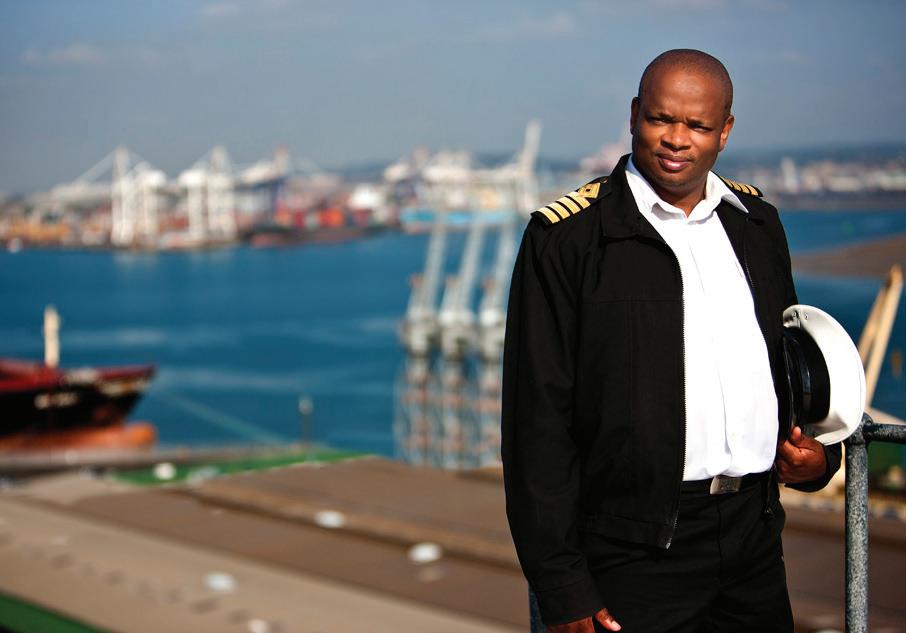
The 52-year-old marine pilot, who hails from Mamelodi in Pretoria, is in charge of operations at the country’s eight ports – Cape Town, Durban, Richards Bay, Mossel Bay, Saldanha Bay, Port Elizabeth, East London and Ngqura. In addition, he oversees the
eight harbour masters who are accountable for the safety of vessels coming in and out of the harbours.
As a young man, Lekala was determined to find a meaningful career but with limited opportunities, he ended up driving a taxi for four years after matric, all the while seeking opportunities to better himself. That opportunity came in the form of a Portnet advert announcing that bursaries were available to youngsters with matric maths and science. After applying, he won a scholarship to study maritime studies at the then Cape Technikon (Cape Peninsula University of Technology).
From humble beginnings come great things and he went on to become the country’s youngest harbour master (at the Port of East London) in 2002 and, in 2011, the country’s first black Chief Harbour Master and the youngest person in the world to hold this position.
With Transport Month commemorated in October, Lekala says maritime transport is critical to the country’s economy.
He believes that everything revolves around maritime, saying that over 80% of goods distributed around the world are distributed via maritime vessels.
Despite media reports bemoaning the state of the country’s ports, he is adamant that they are satisfactory. He does, however, acknowledge that there is work to be done to improve efficiency and turn TNPA into a world-class ports operator. To this end, he says nine tugboats, four dredgers and four helicopters have been procured.
Lekala says when he took over, gender transformation, particularly in management positions in the maritime industry, was among his priorities and he is proud to reveal
that he has achieved that. He says when he was appointed as chief in 2011, there were no female harbour masters. He set a target that by 2020, Transnet would have four female harbour masters, which is a 50-50 gender scale.
“We have them now, and if you look at the structure, we have enough female pilots and tug masters; we pride ourselves on that. I believe in transformation and empowering others with skills. It did not come easy, but I’m glad in the 10 years of my leadership, I achieved this 50-50 [ratio],” he says.
However, the gender equality fight is not over, he says, because many shipping lines are reluctant to hire female employees, despite their capabilities.
While Lekala boasts about the female harbour masters, he also reflects on the challenges in the industry. One of the biggest is the lack of infrastructure transformation,
which discourages people from joining the industry.
Another concern of his is the lack of ships owned by South Africa. “We only have four ships as a country; we cannot train people as much as we would want.”
While COVID-19 wreaked havoc in many sectors of the economy, Lekala says the maritime industry was spared as it was classified as an essential service.
Being at the helm of such a key sector of the economy comes with huge responsibility and requires experience and leadership skills, he says.
Lekala, who reports directly to the Chief Executive Officer (CEO) of the ports authority, says his management style was inspired by his mother’s values of respect, honesty and trust.
“You will not respect somebody that you do not trust and you will not be honest with
that person. You first have to trust and be honest with yourself; that is the ethos system that I have developed,” says Lekala.
Reflecting on his journey to the top, Lekala says that as a youngster, he never imagined becoming a harbour master. This was not a profession that was popular among black people back then, he says, but through hard work, he has been a trailblazer in the sector.

He remembers the transformation period in the maritime industry in the late 1990s and says he was among the first black people to occupy management positions.
After finishing his training, he trained as a tug master and then as a marine pilot. “I became a pilot in 2001 at Saldanha Bay. Within a year, in 2002, aged 32, I was appointed harbour master of the East London Port; the rest is history,” he says.
Lekala says the Port of East London was not doing well when he took over. He had to implement immediate change. He managed to turn the port around and demonstrated good leadership qualities, which earned him the CEO's Employer of the Year Award in 2004.
He attributes his early success to his humble beginnings and the appreciation he received from his subordinates.
“How you conduct yourself as an individual distinguishes you from the rest,” he says.
In 2004, when the harbour master of Cape Town retired, Lekala was called to take over there. In 2007, he was redeployed to the Port of Durban, which is one of the biggest ports in Africa. He described this appointment as his biggest achievement as it set him up to take over as Chief Harbour Master in 2011. He says the Port of Durban receives more than 60 vessels a day, which requires the harbour master to have a high level of intelligence and experience.
“I strive to do my job to the best of my abilities when I am given a chance. Managers know their staff and they will always acknowledge your input. I guess among the rest, I showed maturity in my work and I was promoted and deployed to leadership sooner than others. But I must say, without their [managers] guidance, I would not be here.”
Lekala says while he has spent his life in the marine industry, he plans to resign before retirement age and become an academic.
He is currently studying towards a Master of Commerce in Maritime Studies through the University of KwaZulu-Natal, with the potential of doing a PhD in maritime studies.
While the concept of smart cities has been explored in academic literature and implemented by several countries around the world, the idea of smart communities has not been substantially explored in underdeveloped countries, which are still predominately rural.
This is according to the Council for Scientific and Industrial Research’s (CSIR) Chief Researcher in Information and Cybersecurity, Dr Jackie Phahlamohlaka, who conceptualised and edited the book, Approaches to Building a Smart Community: An Exploration through the Concept of the Digital Village.
Researchers from the CSIR and various South African universities recently launched the handbook, which provides practical approaches to building smart communities for underdeveloped and information-deprived communities in developing countries.
The book was commissioned by the Siyabuswa Educational
Improvement and Development Trust (Seidet), of which Phahlamohlaka is the founder and Board Chair. It contains unique recommendations informed by the researchers’ years of academic work and direct involvement in community development through the use of information and communications technology and architectural and engineeringtype experimental development work.
Since the advent of the Fourth Industrial Revolution (4IR), there has been a strong drive to establish smart cities. “This refers to reconfiguring urban areas into modern spaces that utilise different types of electronic methods and sensors to efficiently collect data and manage assets, resources and services.
“A smart community, on the other hand, advocates the building of an interconnected community that leverages smart technologies to benefit citizens, businesses and service organisations for economic growth,
social benefits and environmental sustainability,” Phahlamohlaka explains.
The book features 10 chapters on the building of smart communities and the topics range from entrepreneurship training to digital ecosystems and smart infrastructure as the basis of a smart community. Twelve researchers collaborated on each chapter.
“The book is expected to help communities around the globe find a suitable approach to try themselves and, by doing so, find something that positively contributes to the quality of lives of people in those communities,” says Phahlamohlaka.
Another book edited by Phahlamohlaka, launched in 2008 and titled CommunityDriven Projects: Reflections on a Success Story, A case study of science education and information technology in South Africa, chronicled the success
of Seidet.
In 2011, Phahlamohlaka started exploring the concept of a Seidet Digital Village and challenged his CSIR colleagues to see if possibilities existed for the Seidet Centre to be morphed into a smart community centre. Several papers were co-authored and published.
“I then realised that one approach based on the Seidet experience would not be enough to assist communities in developing countries. I identified other researchers who had done related work that qualified them to propose an approach to building a smart community that others could try, from a developing country’s point of view. This is how the [latest] book was conceptualised,” he says.
The book was also inspired by challenges posed by the 4IR.
“We are in a developing country and well-developed concepts such as smart cities only apply to a small proportion of our geographical spread. The bigger spread is made of
villages, townships and rural communities that also need to benefit from the digital revolution. There was good research work done by the contributors that needed to be implemented at community level,” says Phahlamohlaka.
To put the book together, he presented his high-level thoughts on what he hoped to achieve to the researchers. “I wanted a book that would latch onto their personal work. I want the readers to see for themselves that the approaches proposed are made by people with first-hand experience and interest. I selected the contributors based on these criteria and worked with each researcher to complete the chapters,” he explains.
The book is expected to add value to government programmes and departments, which can try various approaches to improve service delivery in communities.
“I believe some communities will be inspired into action to try one or more of the approaches proposed, and am hoping that when they do, the book will serve as a guide,” says Phahlamohlaka.
“The book plants the seed for
collaboration with local government ... an observation from the Presidential National Commission on 4IR is that the concept of smart cities would best be implemented as smart communities in South Africa.”
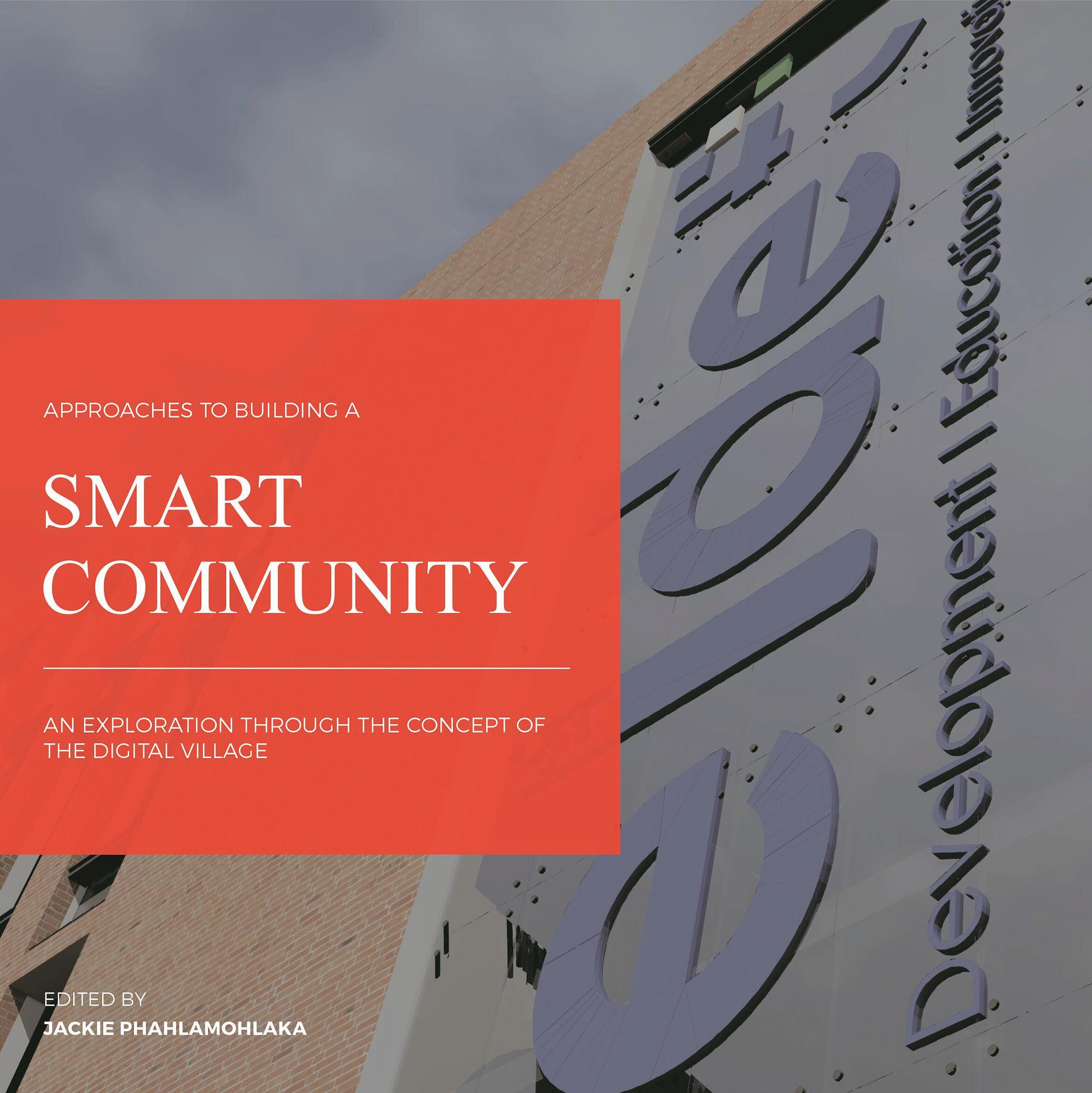
The plan is to turn each of the chapters into a costed proposal and obtain funding to try the approaches.
Phahlamohlaka, from GaPhaahla Village in Siyabuswa,
Mpumalanga, completed his Master of Science in Computational and Applied Mathematics at Dalhousie University in Canada and a PhD in Information Technology at the University of Pretoria. He also completed the Executive National Security Programme at the South African National Defence College in 2007.
He is an Honorary Fellow of the Institute of Information
Technology Professionals of South Africa, a member of the South African National Committee for the International Federation for Information Processing (IFIP), and represents South Africa in Technical Committee 9 of the IFIP.
To read the book’s preface or purchase a copy, visit https:// www.cambridgescholars.com/ product/978-1-5275-7152-5
have longevity from one season to the next; one year to the next. If you can, save towards these high-quality items instead of falling for fast fashion trends. We promise, these will always be in fashion and will last you longer.
1 A pair of Chuck Taylors? Yes, you heard right, these shoes have been around since 1917 and have proven to be versatile and are always on trend. Wear them casual or smart casual, Converse: R950

2 Everyone needs a little black dress, or just a good black dress in general. Find something easy to wear and with a simple style, like this knit one from Forever New: 1 599

3 Invest in a beautiful leather bag, whether it’s a clutch or tote. They last forever and will smarten up anything you wear. We love this one from French designer Vanessa Bruno, vanessabruno.com: R7 600

4 A signature scent will always leave a lasting impression, so choose wisely. There are constant new editions from various fragrance houses and designers. A classic scent that’s been popular for ages is Chanel’s Coco Mademoiselle, Woolworths: R2 155 (50 ml).

5 A statement pair of shades is a must-have accessory. They needn’t be expensive, but help you stand out from the crowd. If you can splurge, opt for a designer like Celine, Sunglass Hut: R5 710

6
6 The perfect white tee. Yes, it does exist. Together with the perfect, crisp white shirt, these are wardrobe must-haves. Keep it simple like these classics from Levi’s: R350

7 Just like the ladies, there is nothing like leaving a lasting impression long after you have left the room. A signature scent is a must-have and wearing a fragrance you love if a great mood enhancer, we love Tom Ford’s Black Orchid, Woolworths, R2 250 (50ml).

8 How cool are these Oakley sunglasses with the purple lens? The Manorburn Prism sunglasses is a lightweight frame and classes shape, Sunglass Hut: R1 930.

9 A leather card holder or wallet is another must for the distinguished gentleman. These can last you for years if they are of high quality. We especially love the print on these black and orange ones from Burberry, 24s.com: R2 900.

10 There is nothing more iconic – or versatile – as a pair of Levi’s 501 jeans. Get them in dark blue and you’ll have a blank canvas you can style any way you like, Levi’s: R999.

* Prices correct at the time of publishing.

After long cold winter days, the sun has finally come out to play, and we are ready for it. It’s time to pack those picnic bags and head out and enjoy the summer sun. We have put together some picnic treats that are delicious and quite easy to make.
Ingredients:
• 2 cups fruit of your choice.
• 1/2 teaspoon vanilla essence.
• 1 cup Greek yogurt.
• 4 tablespoons honey divided.
• 3/4 teaspoon lemon juice.
Instructions:
• In a blender add lemon juice, fruit, three tablespoons honey and blend until smooth texture.
• Whisk the yoghurt, vanilla essence and one tablespoon of honey in a bowl.
• Fill your popsicle molds with two teaspoons of the fruit puree followed by two
tablespoons of the yoghurt mixture, repeat until the mold is full.
• Place the mold in the freezer for two hours. When popsicles are slightly set, take it out of the freezer and insert popsicle sticks in the centre of each popsicle, this allows the sticks to firmly stay in place.

• Freeze overnight and enjoy the next day.

Ingredients:
• 12 rice paper wraps.
• 1 English cucumber (julienned).
• 3 Carrots peeled (julienned).
• 1 Red pepper (julienned).
• 1 Cup red cabbage (shredded).
• 1 Cup lettuce (shredded).
• 1 Avocado (thinly sliced).
• 1 Mango peeled (thinly sliced).
Instructions:
• Have your fillings laid out for assembly. In a shallow dish add warm water and soak one rice paper sheet at a time.
• Once the rice paper starts getting loose remove from the bowl and gently place it on a damp cutting board.
• Arrange a thin layer of lettuce, followed by some avocado, mango in the
middle of the rice paper and add a small portion of peppers, carrots, cucumbers and top with red cabbage.
• Fold rice paper over filling gently and tuck in the ends whilst slowly rolling it over until the seam is completely sealed. The rice paper will be very delicate and sticky so make sure you are careful during assembly.
• Cut rolls in half once completed.
Ingredients: 150g Plain Milk Chocolate. 6 Bananas cut in half. Popsicle Sticks. Chopped nuts. Sprinkles.

• Place the tray in the freezer for 15 minutes, until the bananas are slightly frozen.
• Melt chocolate in the microwave and give it a quick stir to make sure it is completely melted.
• Dip in bananas one at a time in the melted chocolate making sure the banana is covered in chocolate.
• Place on baking tray and sprinkle topping of your choice.
• Put baking tray back into the freezer for an additional 30 minutes until bananas are frozen.
* This is a good one to get the kiddies involved in the preparation.

Ingredients:
Instructions:
• Line a baking tray with baking paper and set aside.
• Place chocolate chips, cherries, honey, mixed spices, butter and two cups of muesli in a food processor and blitz until mixed well.
• Place remaining muesli in a plate. Using a tablespoon, scoop muesli mixture and roll into a ball then roll in muesli in the plate and place on baking tray.
• Repeat until mixture is finished then place in the fridge for 30 minutes.
Ingredients:
• 7 cups watermelon cubed.
• 2 Tablespoons honey.
• 1 Lemon (squeezed).

Instructions:
Instructions: Line a baking tray with baking paper. Put popsicle sticks in the cut end of the bananas and place on baking tray.
• 1 cup pitted cherries.
• ½ cup chocolate chips.
• ¼ teaspoon mixed spice.
• 50g melted butter.
• ¼ cup honey.
• 2 ½ cups muesli.
• Place watermelon cubes that were frozen overnight into a blender, add in honey and lemon juice.

• Blend until smooth then strain through a sieve to re -
move any seeds and to have a nice smooth texture.
• Serve with ice and enjoy.
There are some places you discover as you travel that you just know you will come back to – for us, it’s usually places where rest comes naturally.
Northern Kwa-Zulu Natal is a corner of South Africa that does not get nearly enough publicity. Many South African
travellers live oblivious to the fact that this part of the country even exists as they habitually rebook their Garden Route, Ballito, Kruger and Hermanus holidays year after year. The region offers fauna and flora in abundance, pristine beaches, and an opportunity to soak up nature in all its glory.
In March 2022, we travelled north from the Dolphin Coast to Mtunzini, a small coastal village where much of the coastline forms part of a protected area called the Umlalazi Nature Reserve. This lush, green strip with its coastal forests encompasses a beach, a lagoon, and beautifully preserved mangroves. The reserve is clean and includes boardwalks, campsites, chalets, ablutions and braai facilities.


Barging on the Umlalazi River is a common affair for locals and on such a river cruise, you can expect to see vibrant bird life. We also enjoyed a relaxing walk along the boardwalk through the mangrove forest and stopped every so often to observe the fiddler crabs and amphibious mudskippers. Remember to look up every now and then and you might spot a mangrove kingfisher.
The Raphia Palm Forest is a must visit. If you are lucky, you can see one of our country’s rarest birds of prey – the palm-nut vulture – feasting on the fruit of the Raphia palm tree. These trees are breathtaking. Not only are they massive and majestic, reaching up to 25 meters, but they are unique in that they produce fruit once every 20 years,
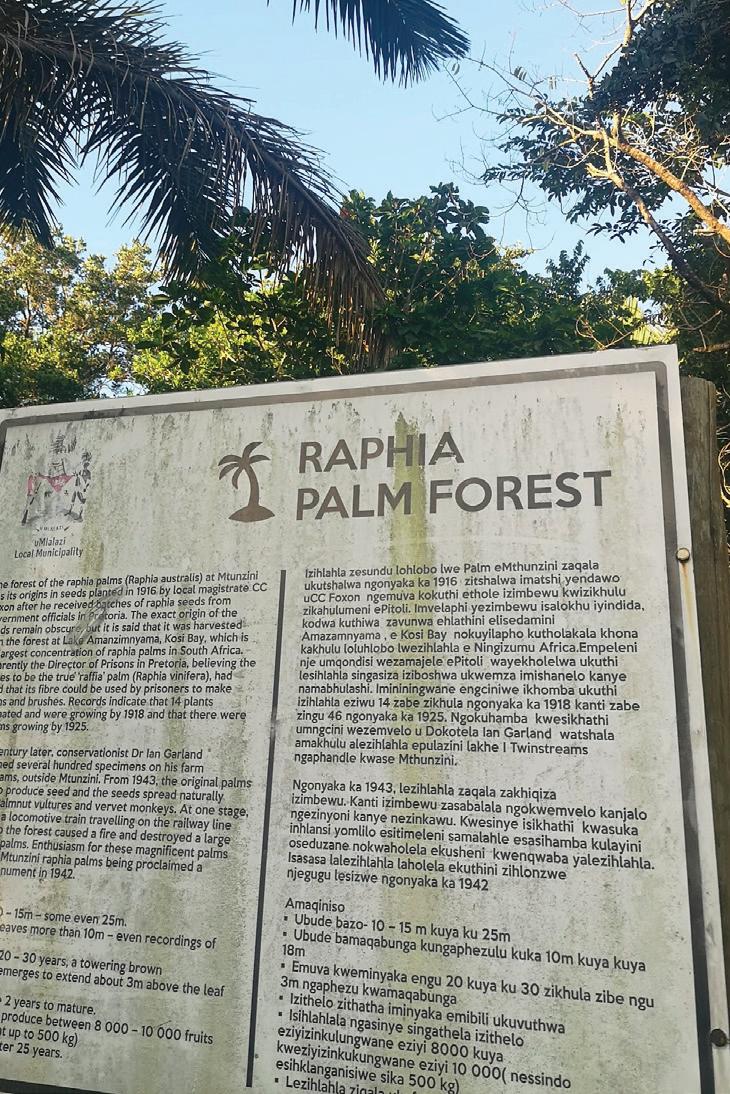
and then they die. We meandered through the forest and marveled at the gigantic palm leaves – some of the largest in the entire plant kingdom.
From Mtunzini, we made our way to St Lucia for a pit-stop before heading to the iSimangaliso Wetland Park to set up camp at Cape Vidal. In St Lucia, we stocked up on exportquality avocados and mangoes and popped in at the renowned Banana Box. The only way to describe this shop is that it is an ‘all-you-could-ever-want, find-whatever-you-don’t-reallyneed’ kind of general dealer. But don’t underestimate it. We walked away with superb snorkel gear, a nifty flashlight, biltong, a massive bottle of
hand sanitizer, and off we went to Cape Vidal.

We gave ourselves enough time to enjoy the drive through the park, driving all the various loops in search of animals and viewpoints. We did not really know what to expect of Cape Vidal apart from a reef for snorkelling and rumours about hyenas and monkeys that rule the camp site.
Visiting in the month of March, we thought we might strike the campsite empty, so the thought of us versus the wild animals was daunting. To our surprise the campsite was bustling. In fact, it turns out that many of the sugar cane farmers in the Zululand area book a camping spot for a couple of
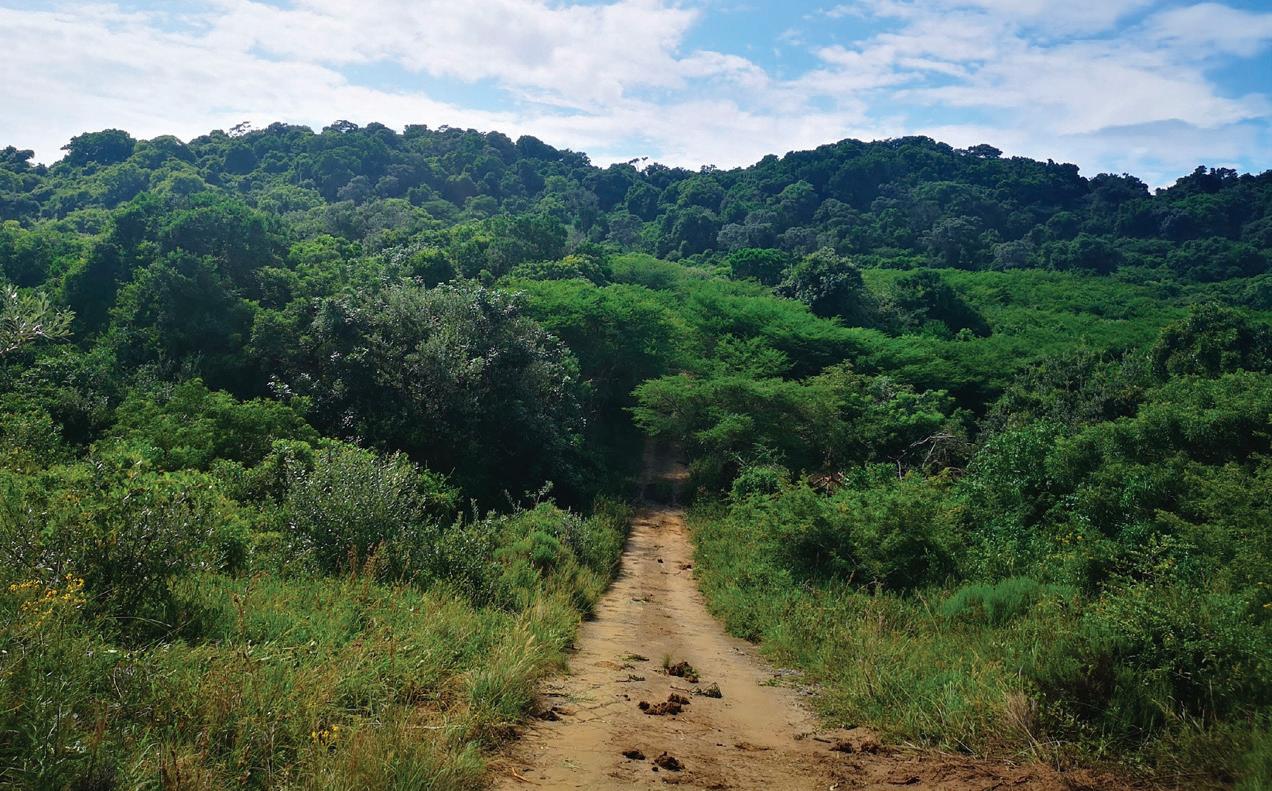
months at a time. This allows them the freedom to make the most of good weather during the season. We stood out like a sore thumb with our basic camp setup and two-man tent. Many a camper (and by ‘camper’ we mean someone with a camping trailer that costs a small fortune, and possibly a boat) would walk past and feel sorry for us in our happy simplicity. We got gifted everything from firewood to freshly caught fish fillets for dinner.
The wild animals were not just a rumour – during the day we kept everything locked away in
the car (since we did not have a fancy camping trailer) and at night we zipped ourselves in our tent and listened as the hyenas came to feast on leftovers in the bins around the camping site. Thankfully they came, ate, and left, so going to the ablution at night was not dangerous, yet it somehow filled one with adrenalin. We snorkeled daily along the rock reef and the rest of our time was spent walking on the kilometres of deserted beach, reading, cooking on the campfire and, ultimately, finding rest for our souls in Zululand.
March is a great time to visit Mtunzini and Cape Vidal as the weather is warm and bearable. Mtunzini has many quaint restaurants and cafés – the Clay Oven has great pizzas and the Country Club offers good food from a diverse menu. You don't need a 4x4 to get to Cape Vidal, but if you want to visit surrounding spots such as Sodwana Bay or Mabibi Beach, a 4x4 is recommended. Take your time to drive through the park on your way to Cape Vidal. Pack a picnic basket, drive all the loops and keep your eyes open for game, stop at the viewpoints, and enjoy your picnic at one of the bird hides. Ask for a camp site as close to the beach as possible. Take all your food and other supplies such as fire wood as the little shop at Cape Vidal is limited.
